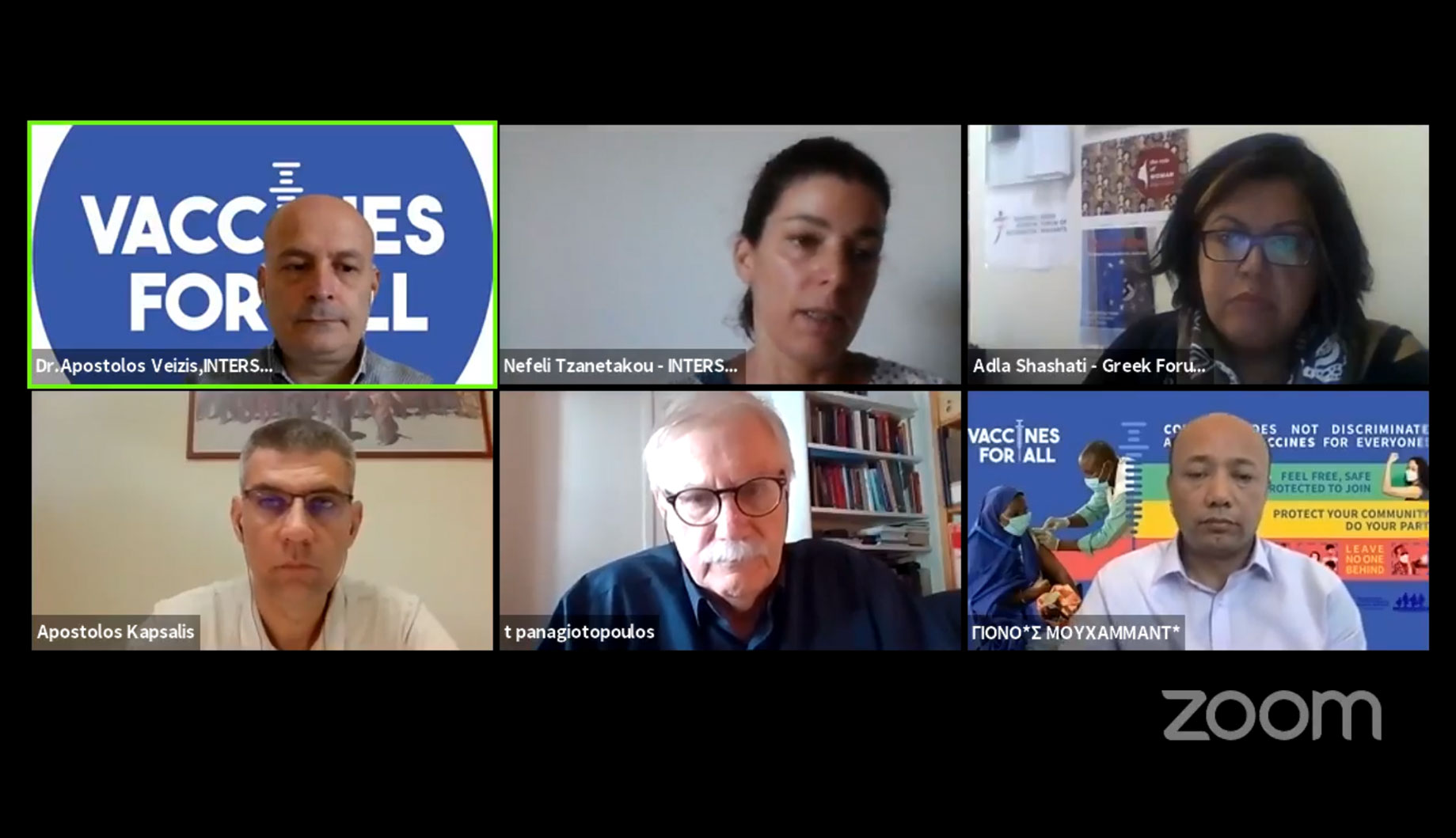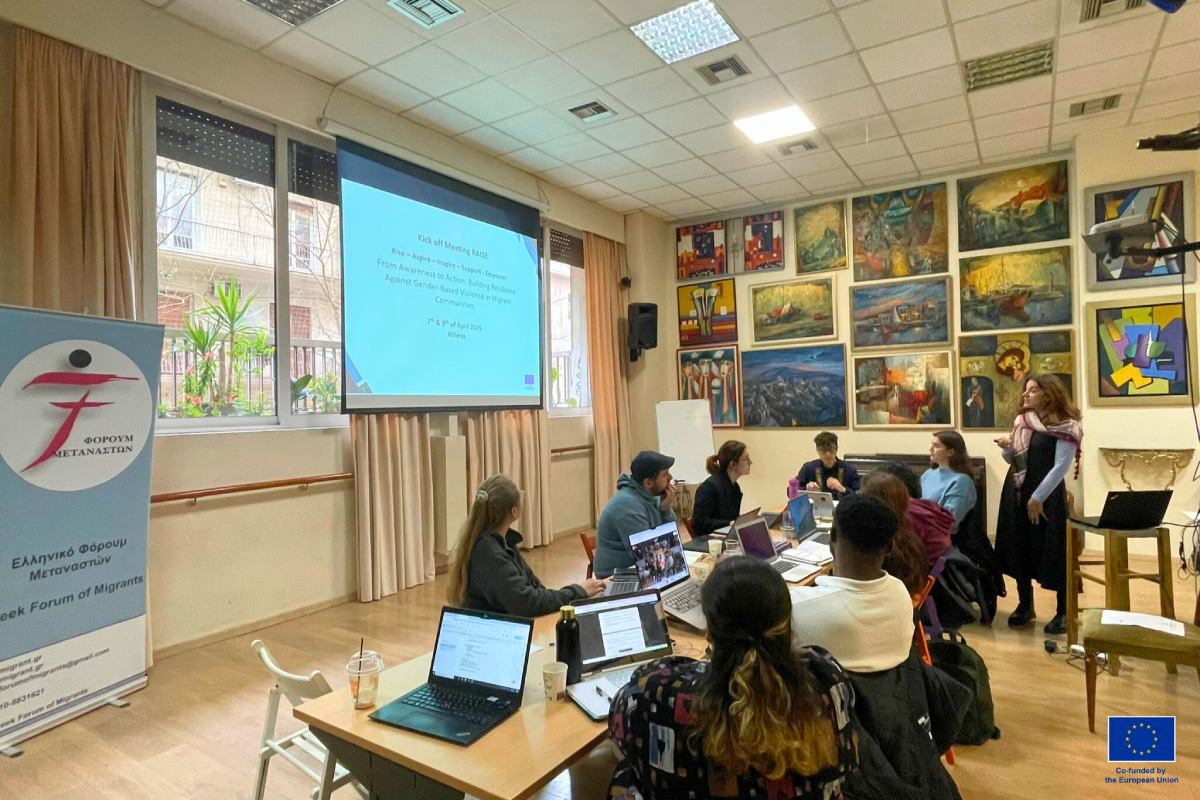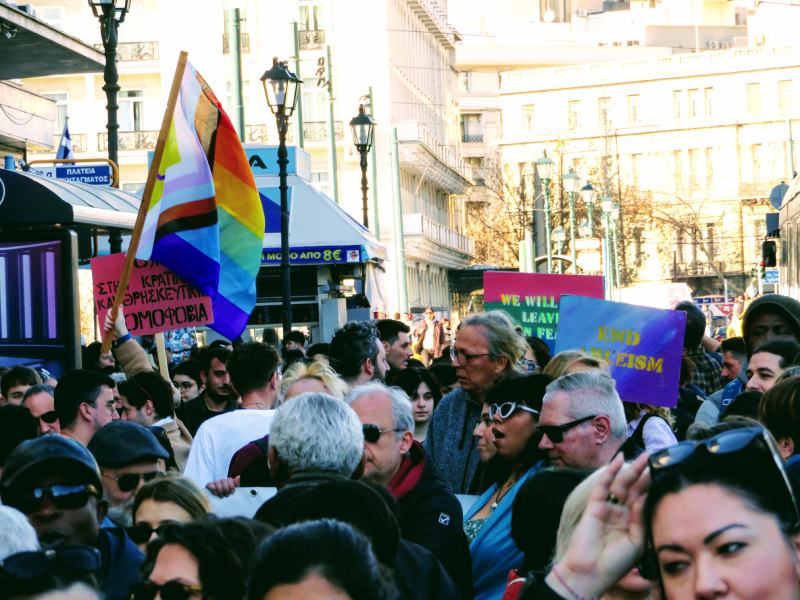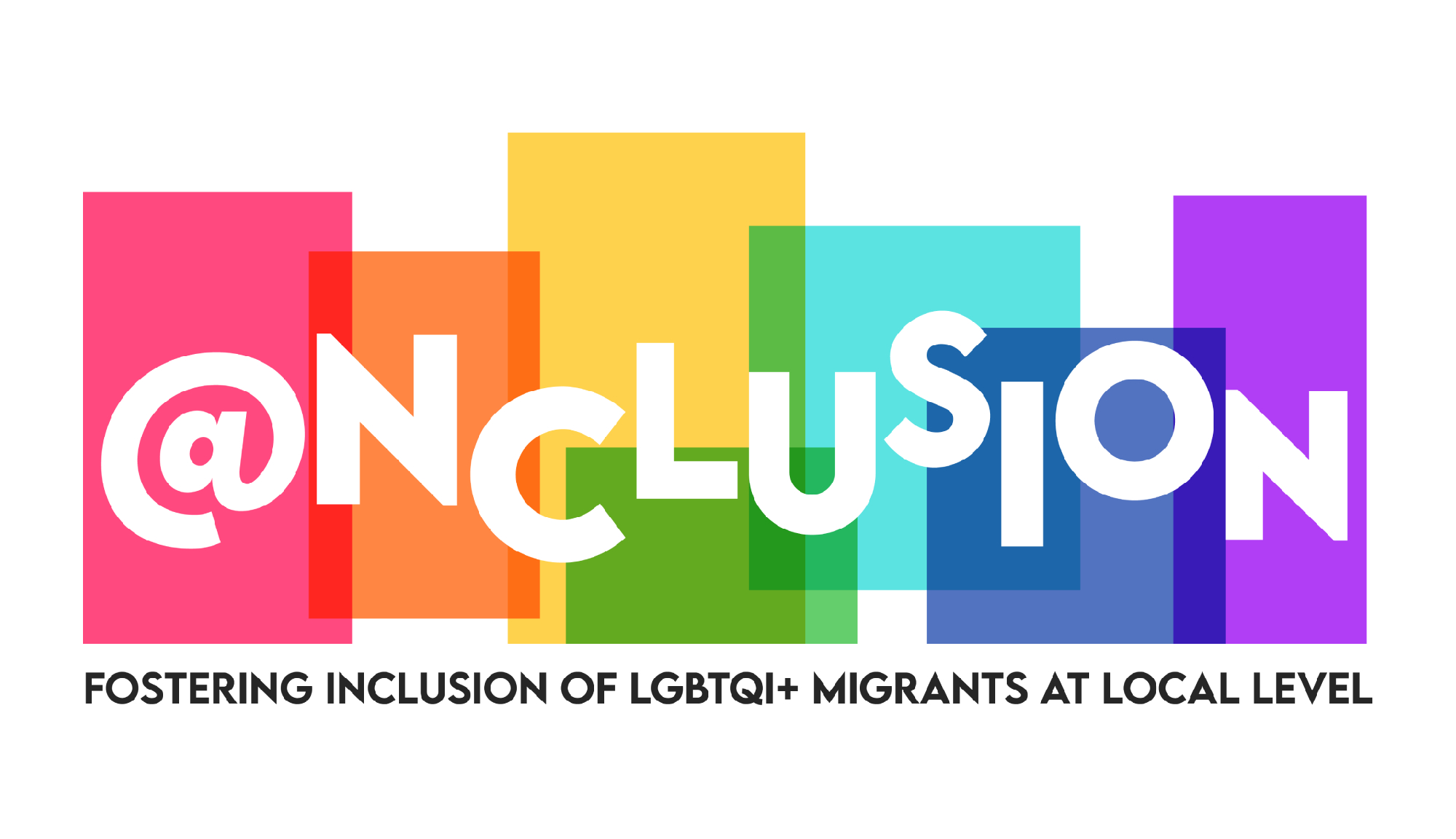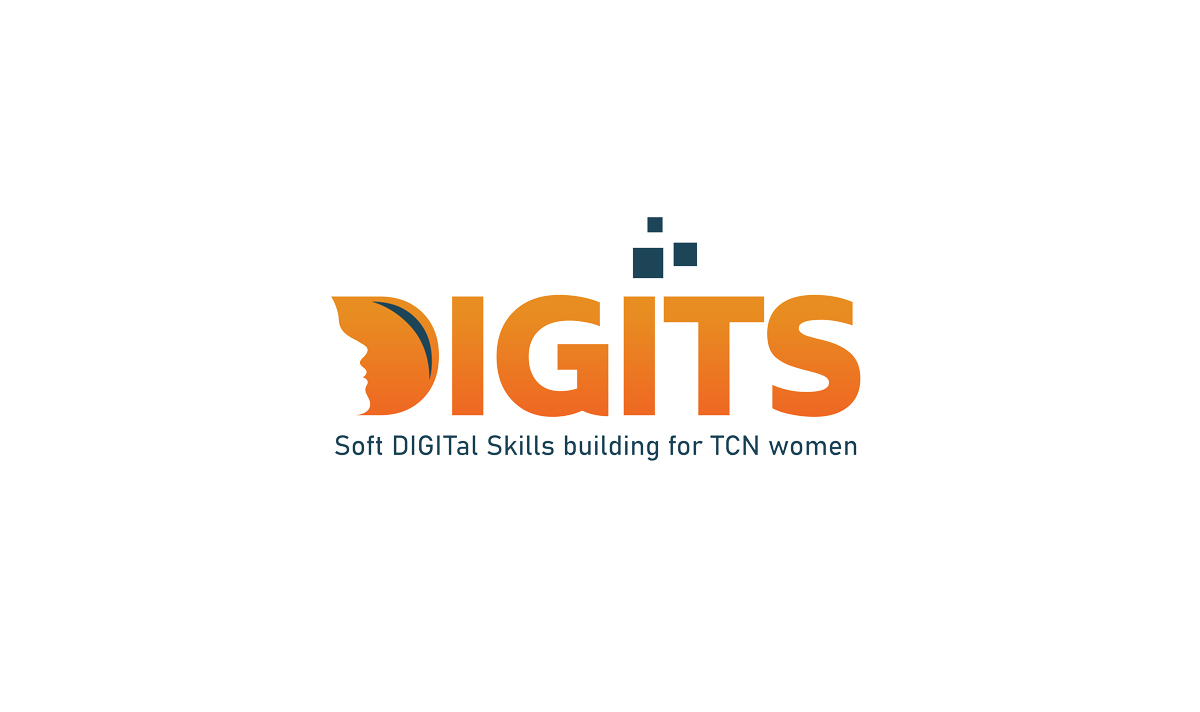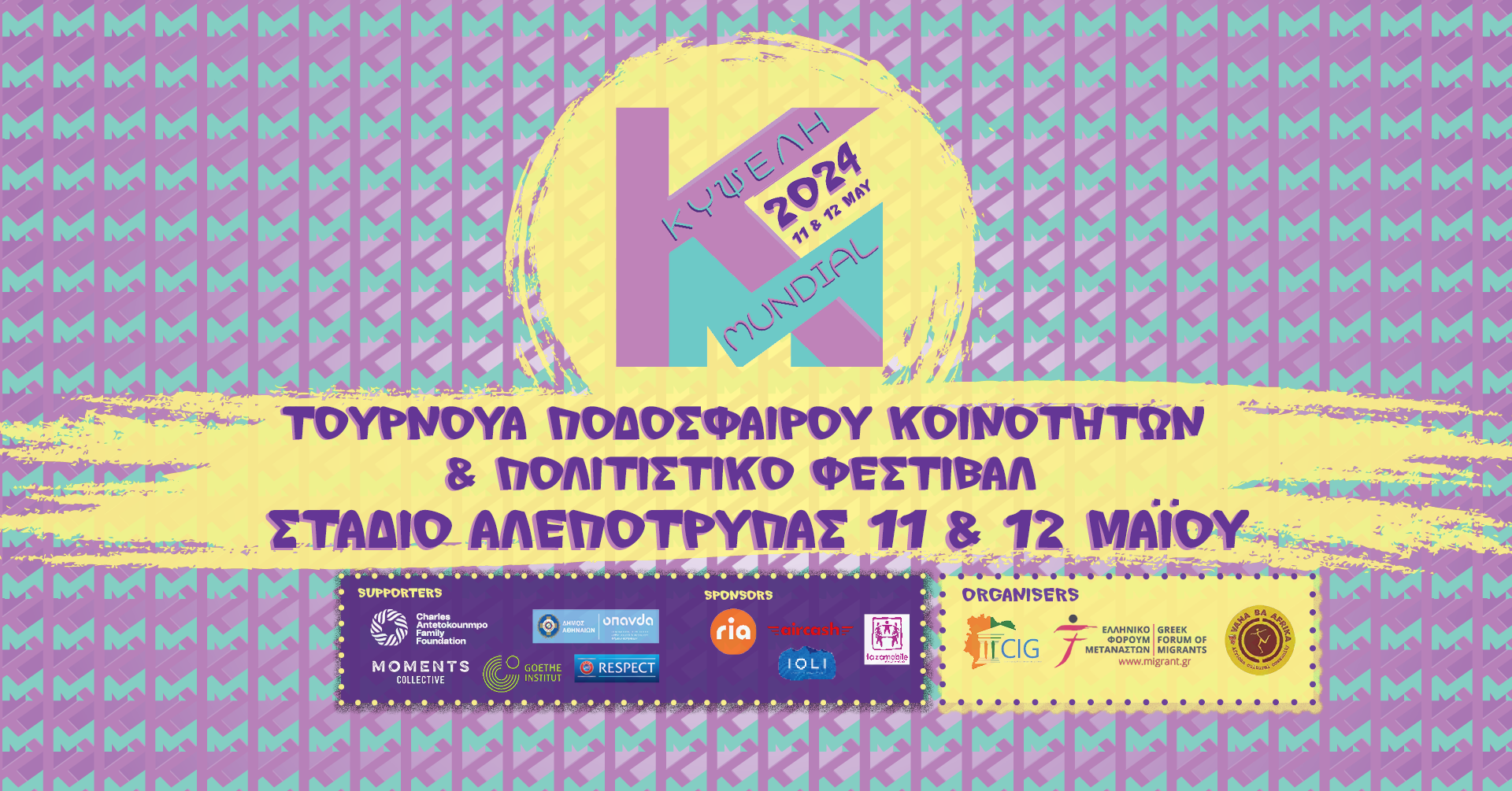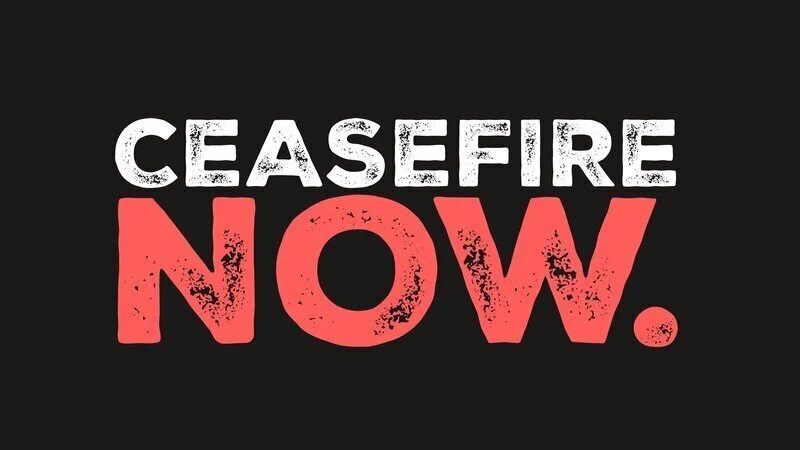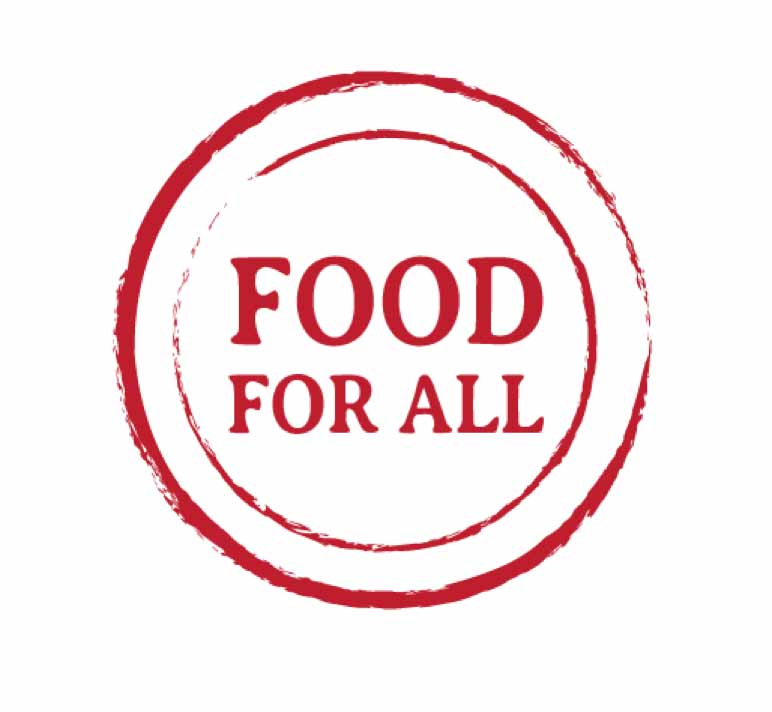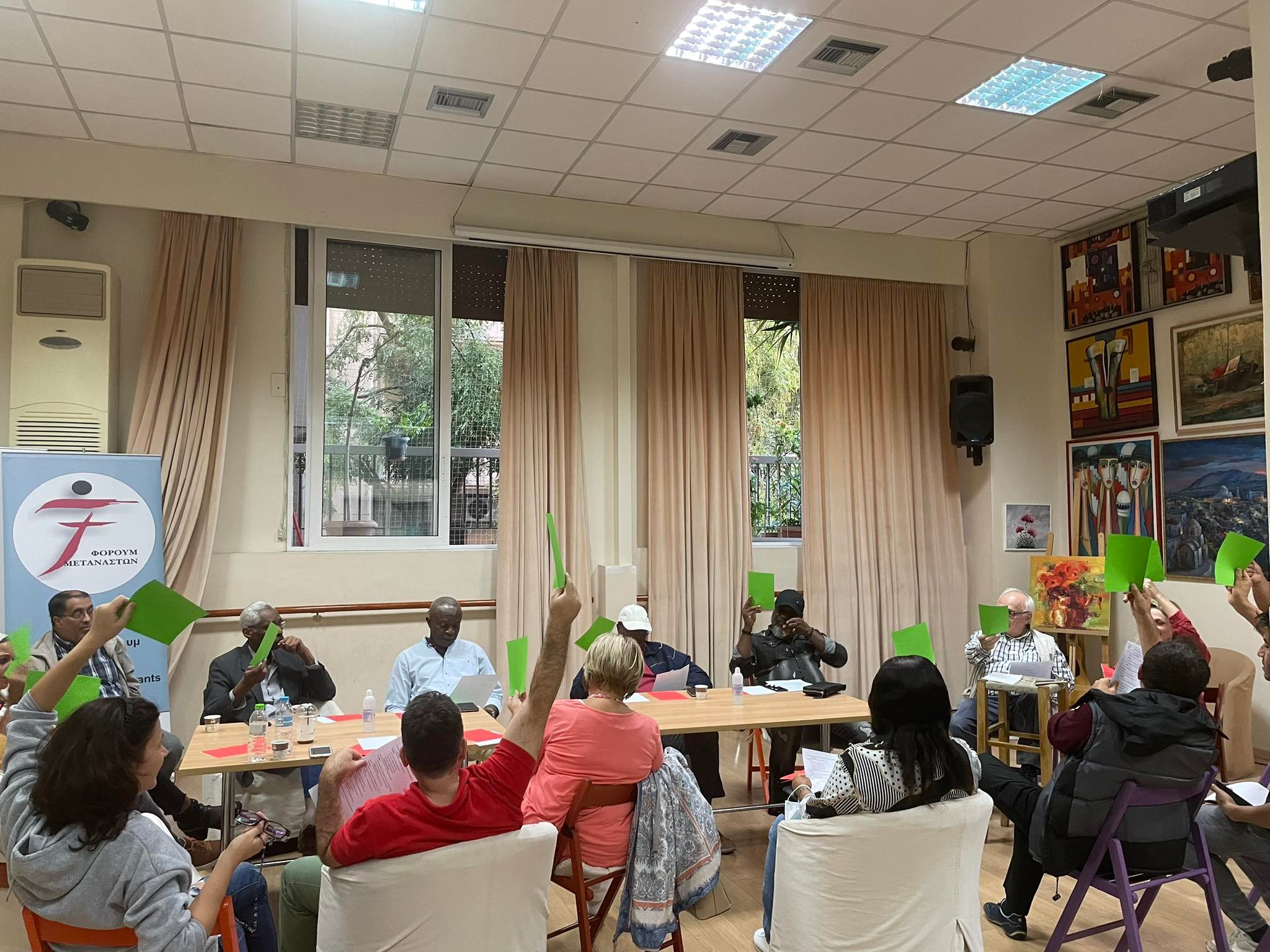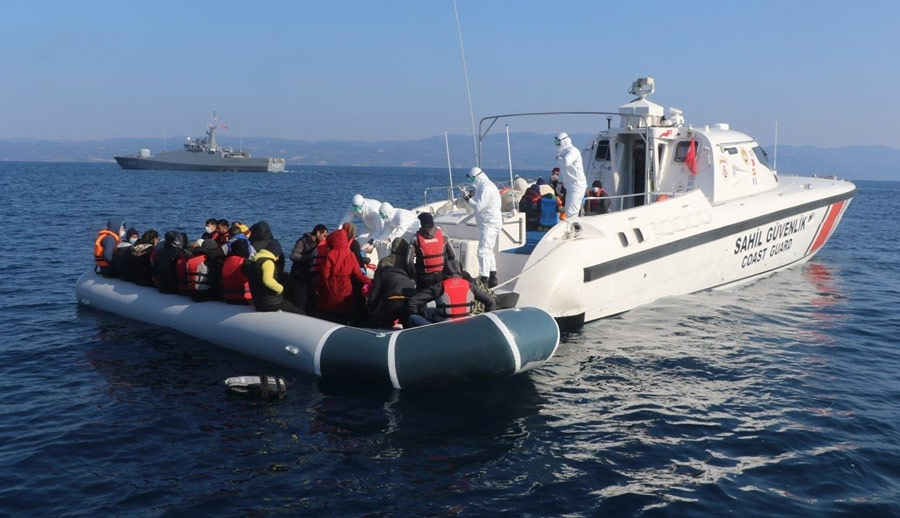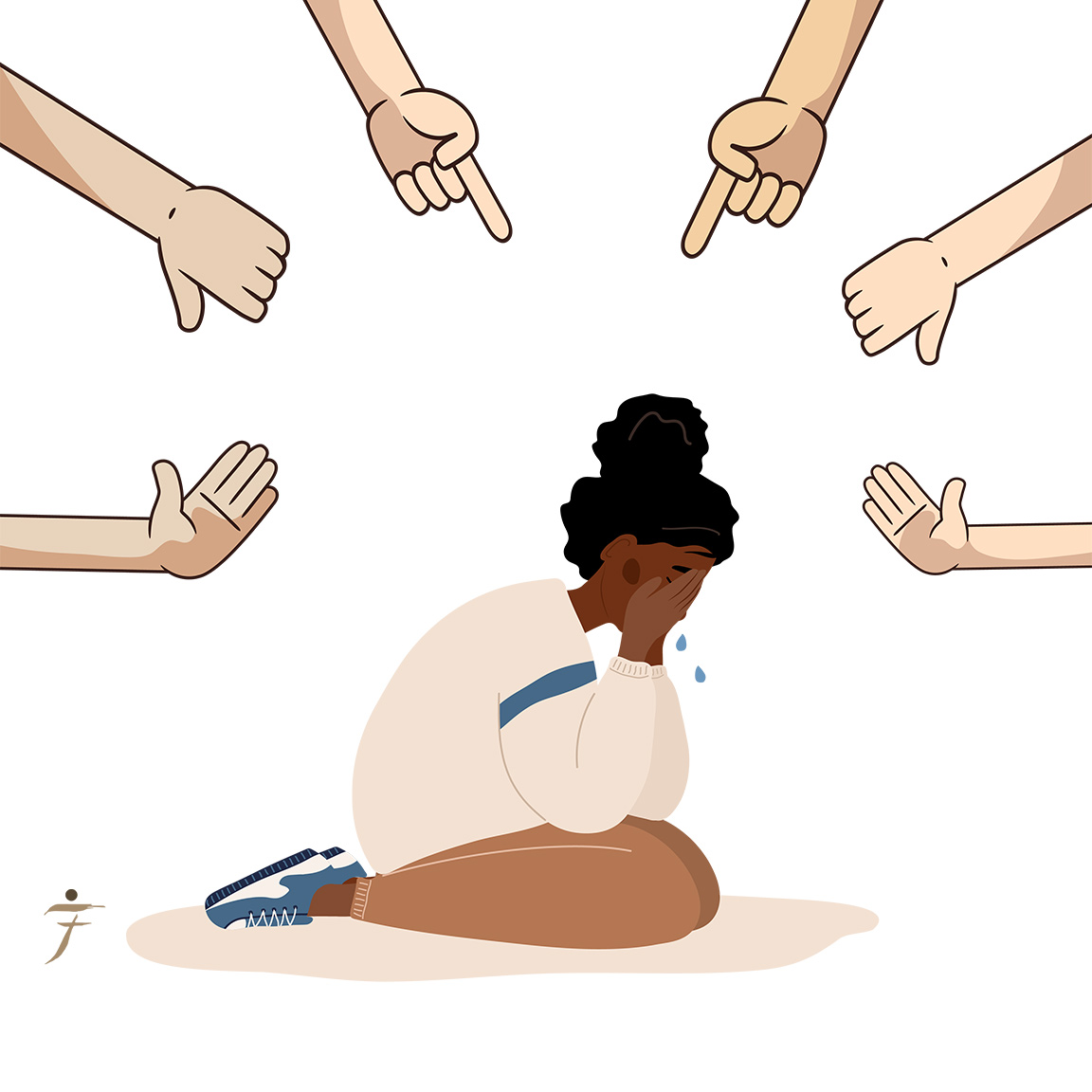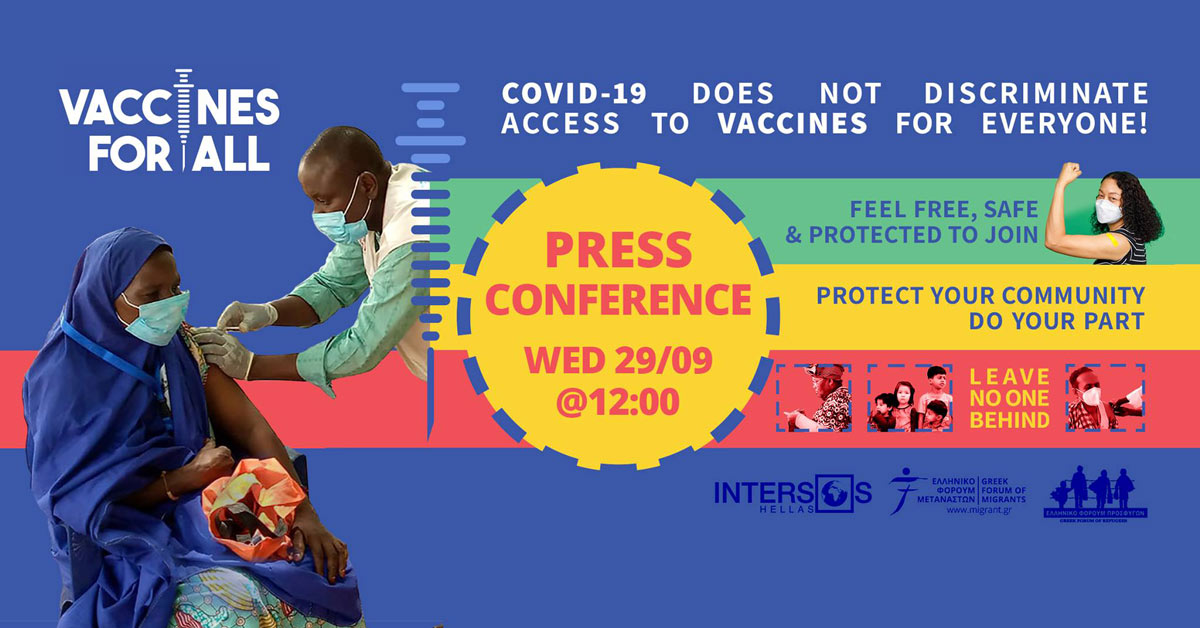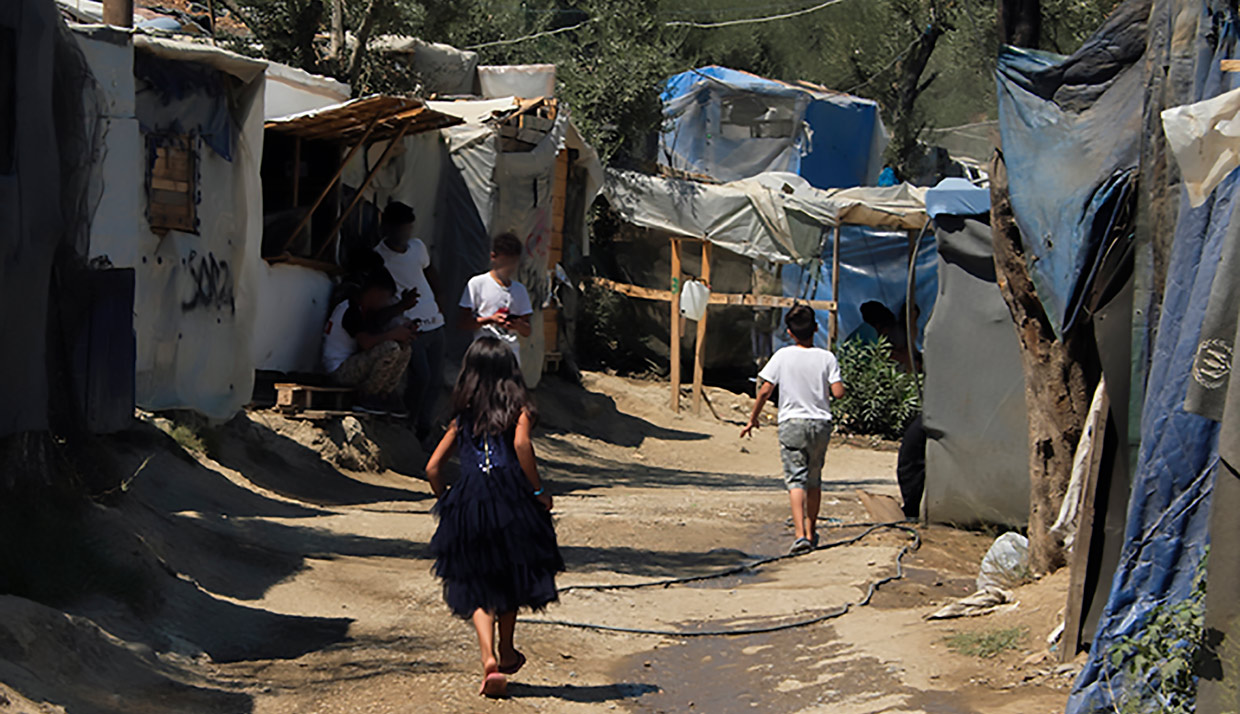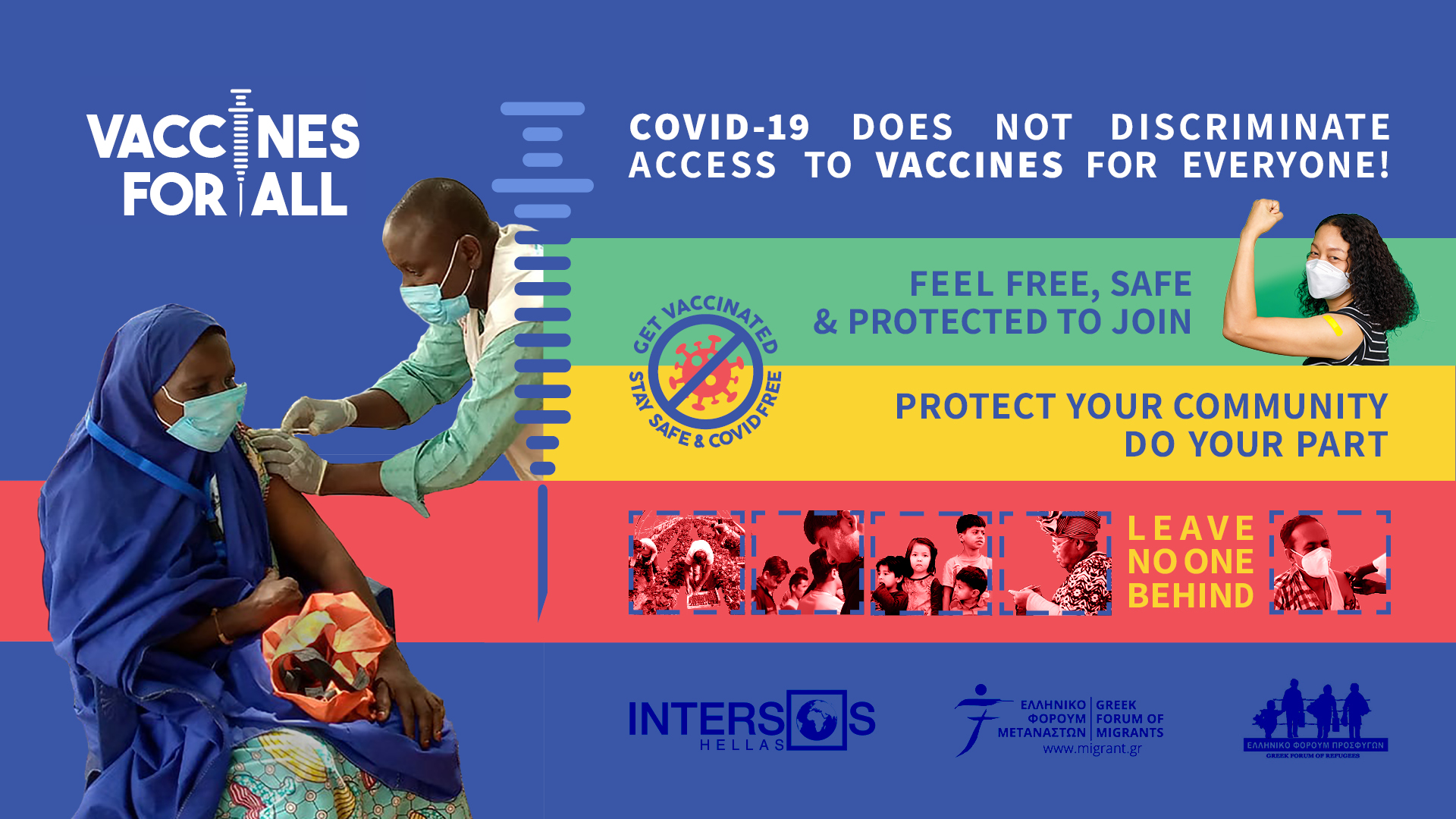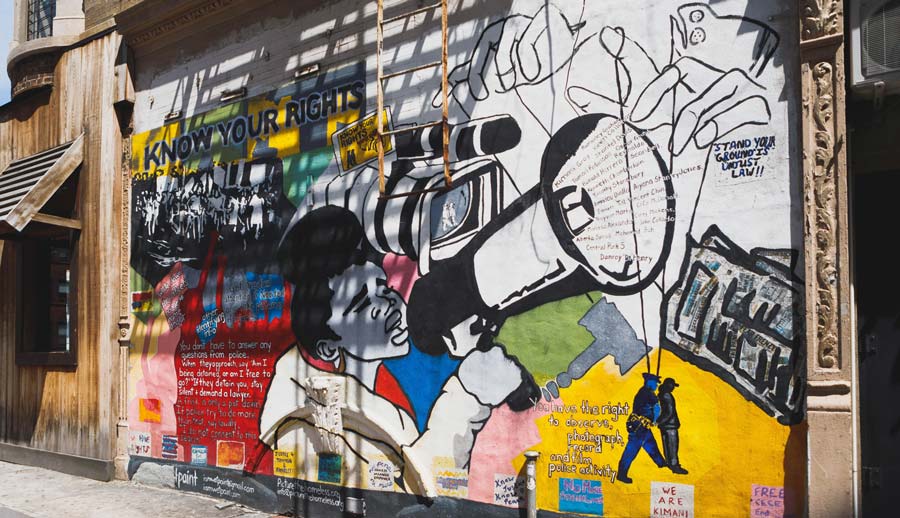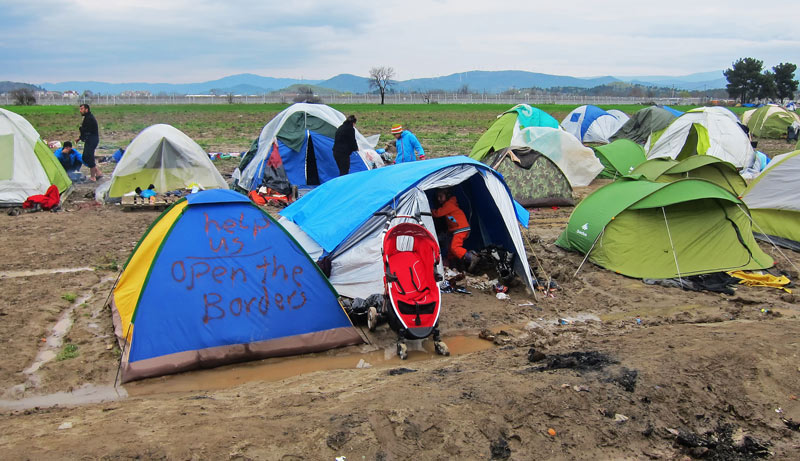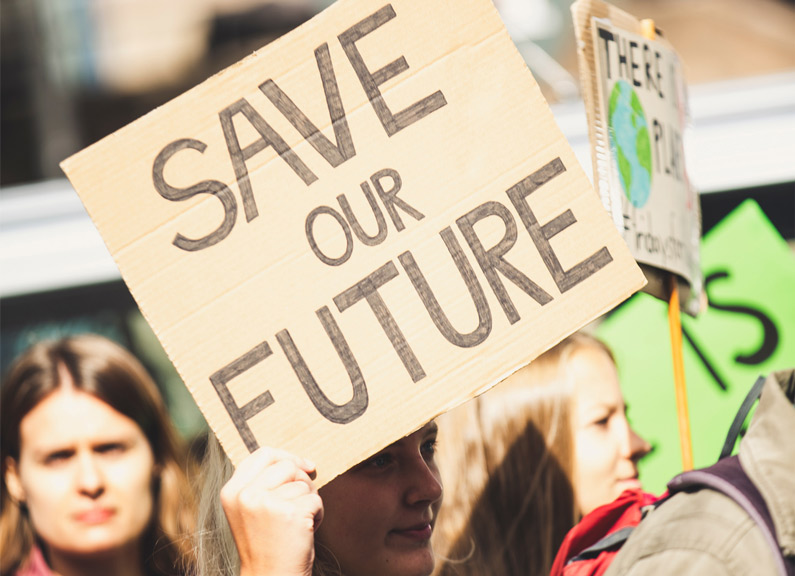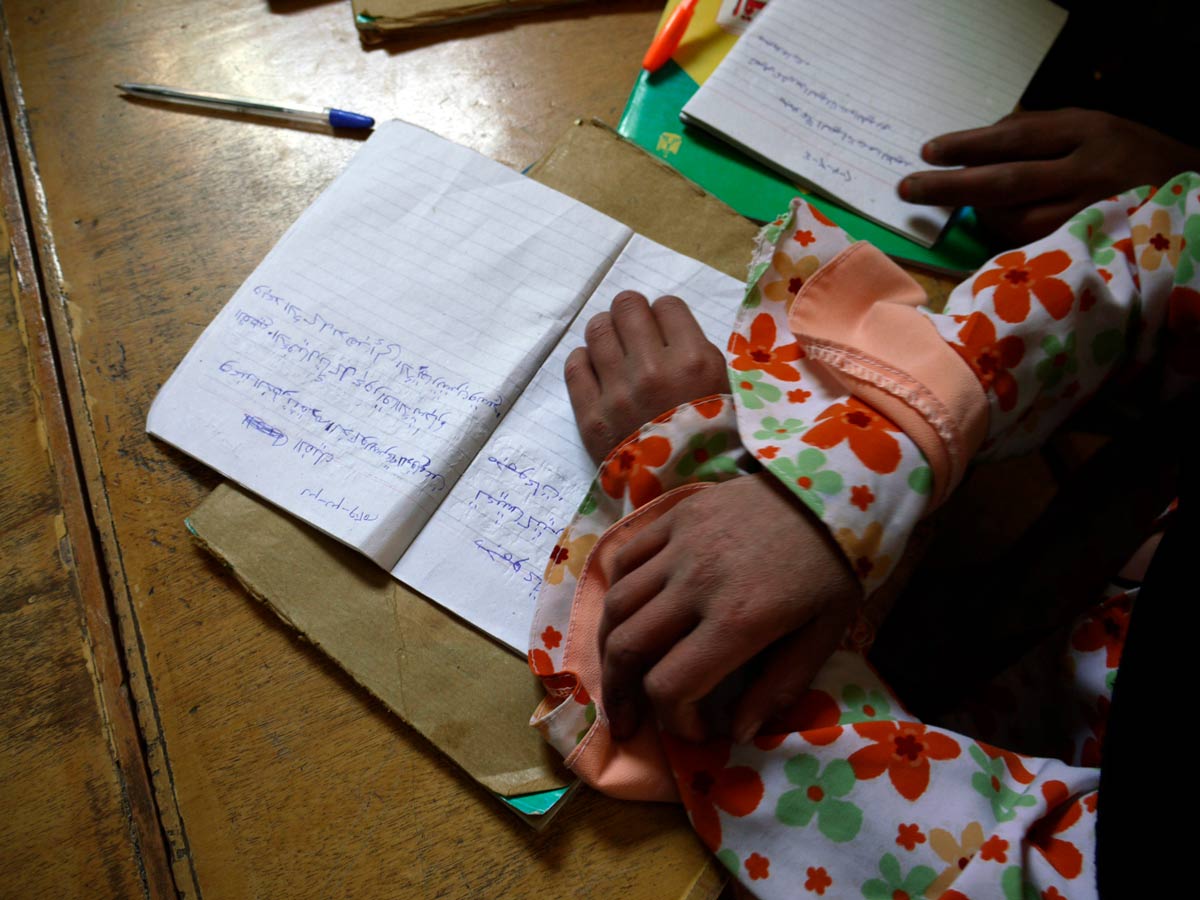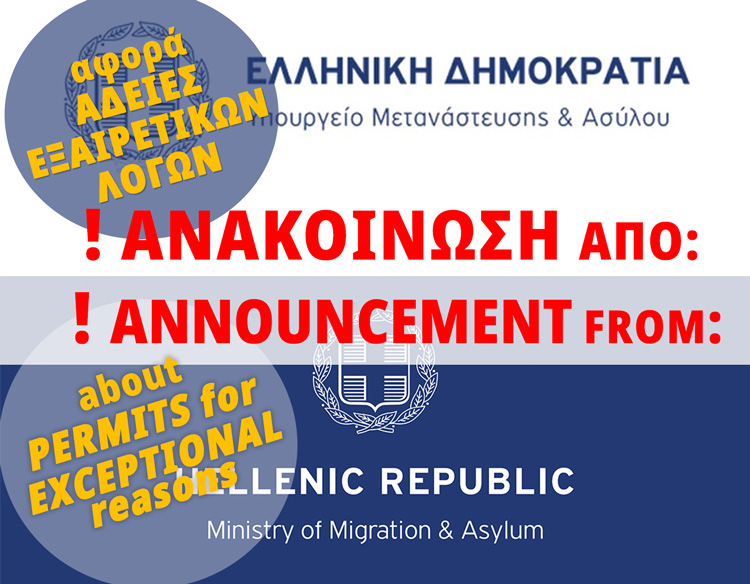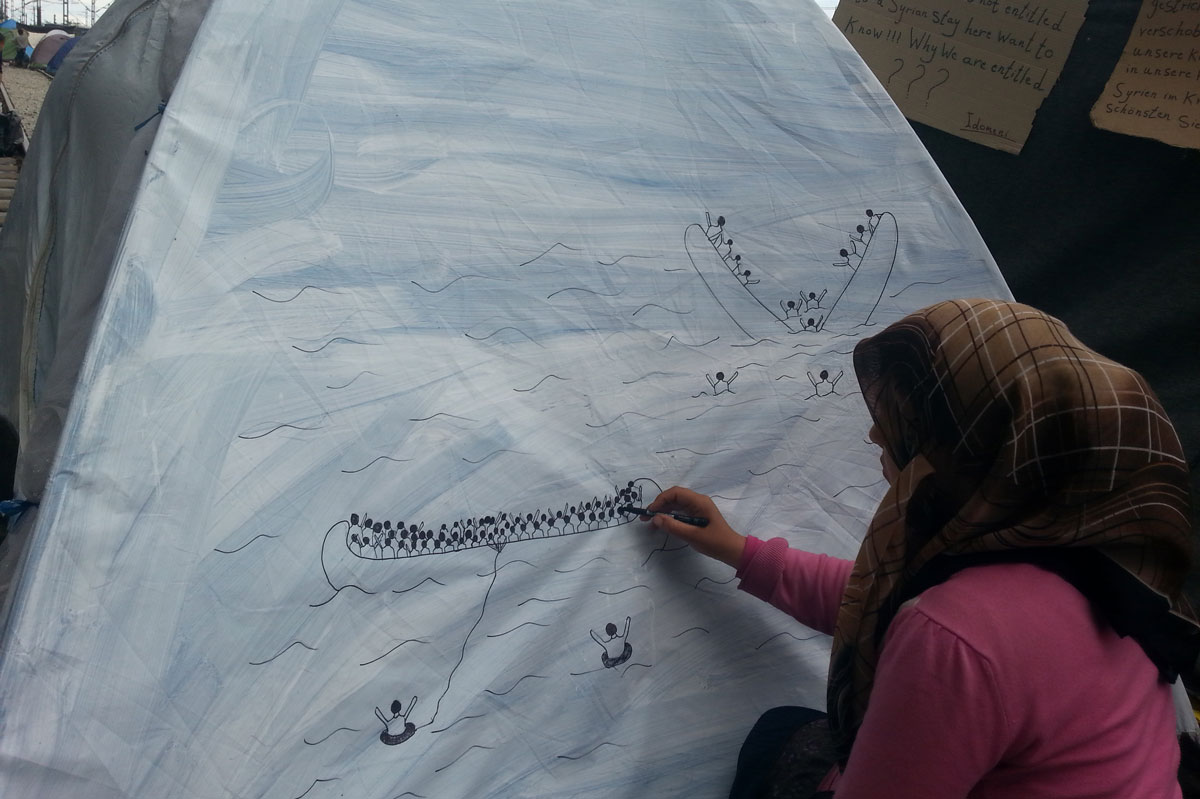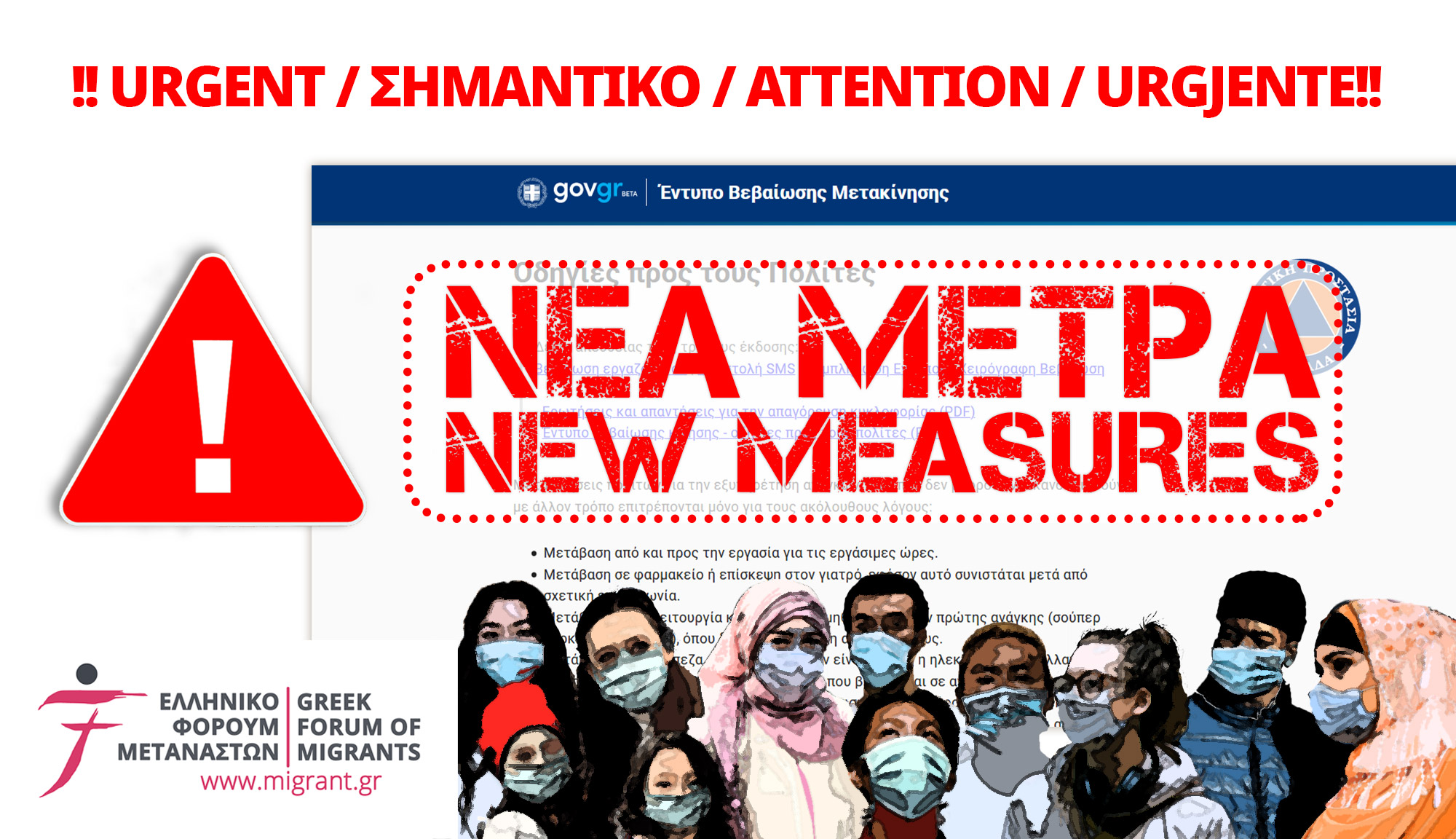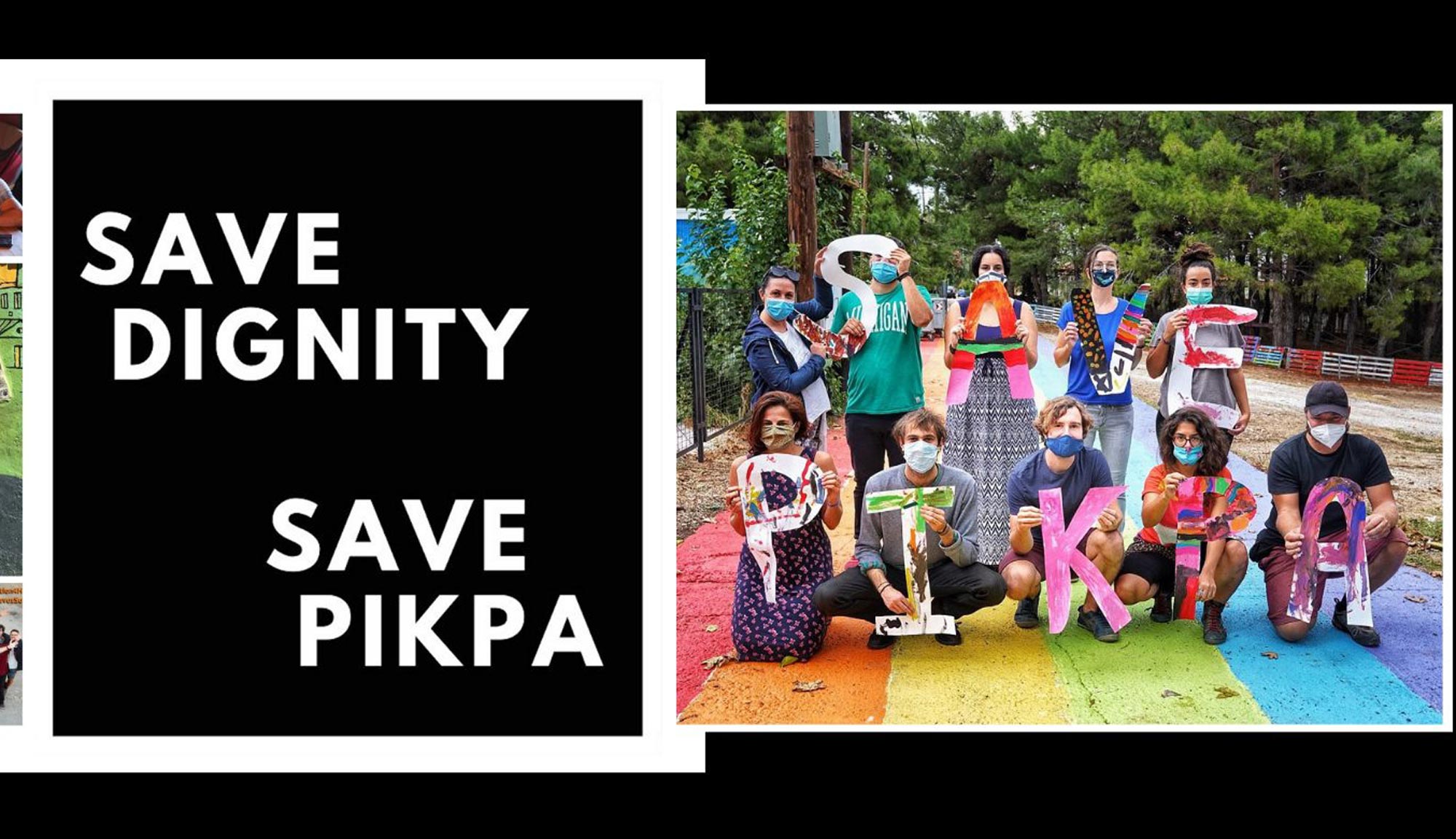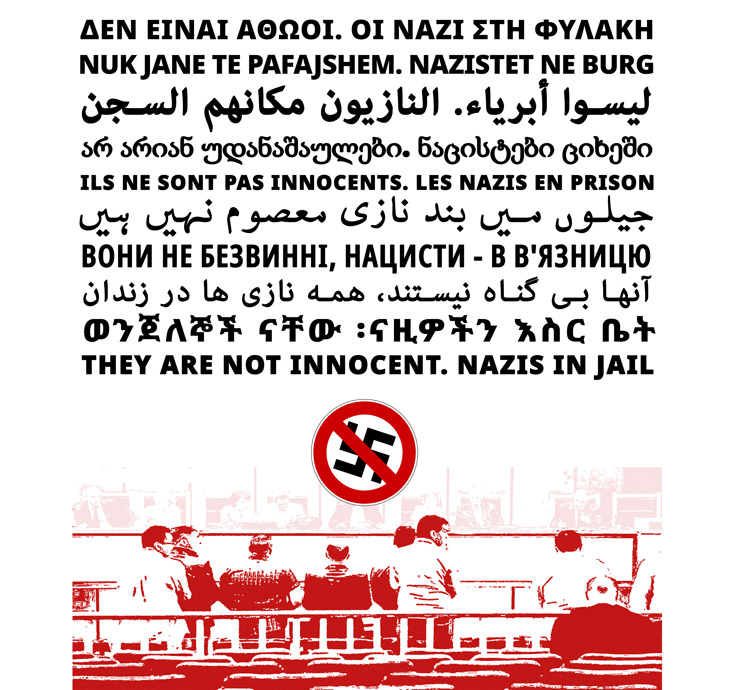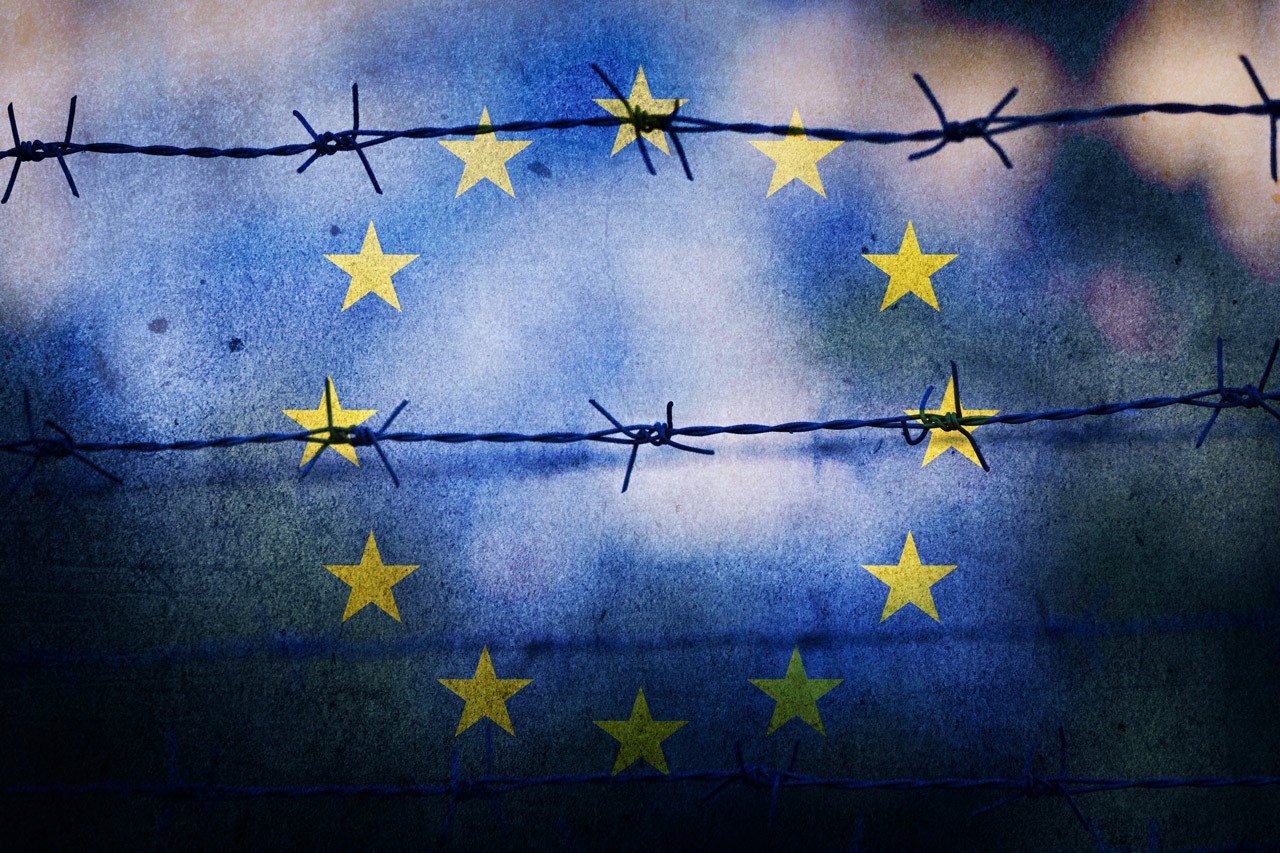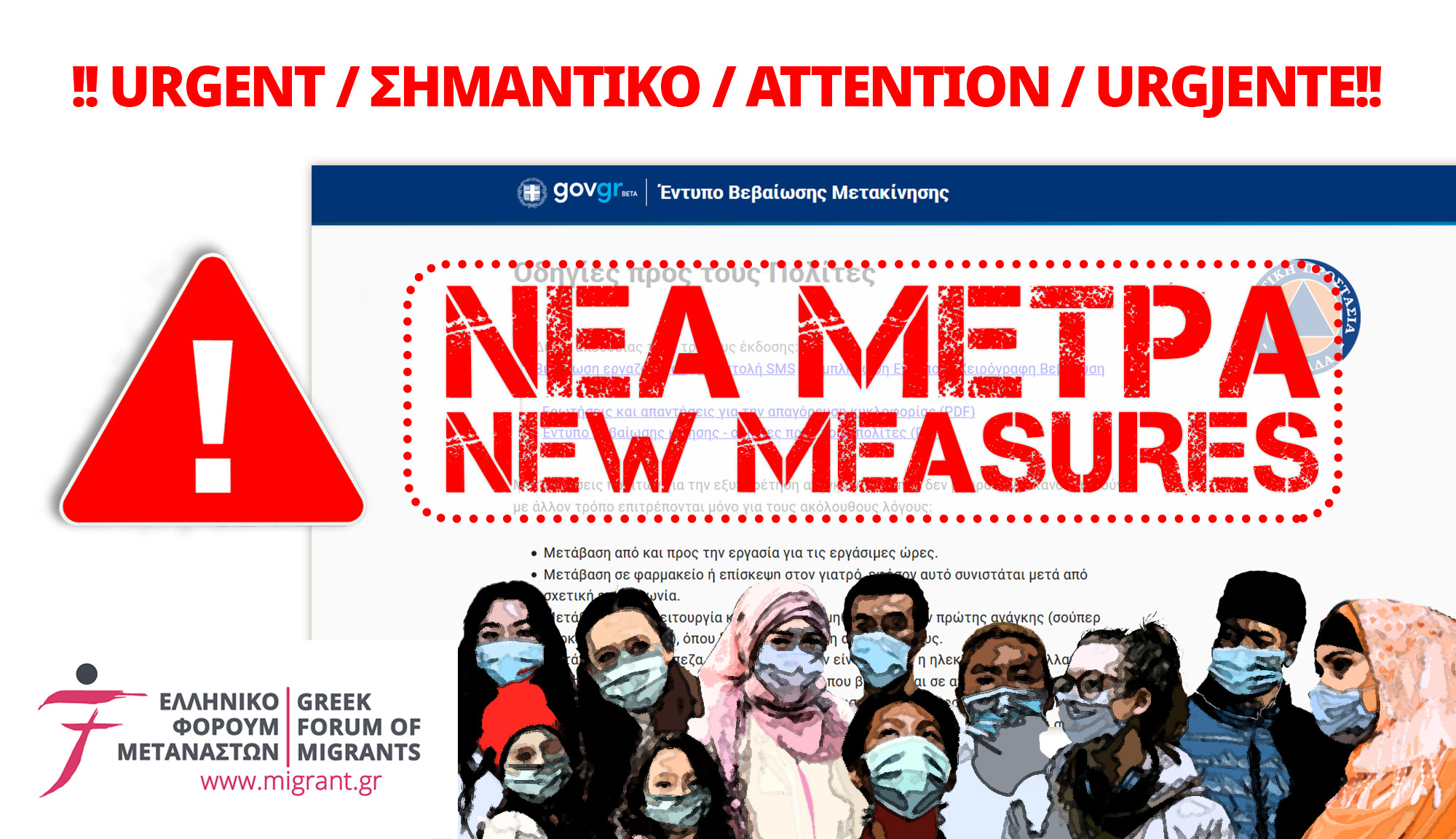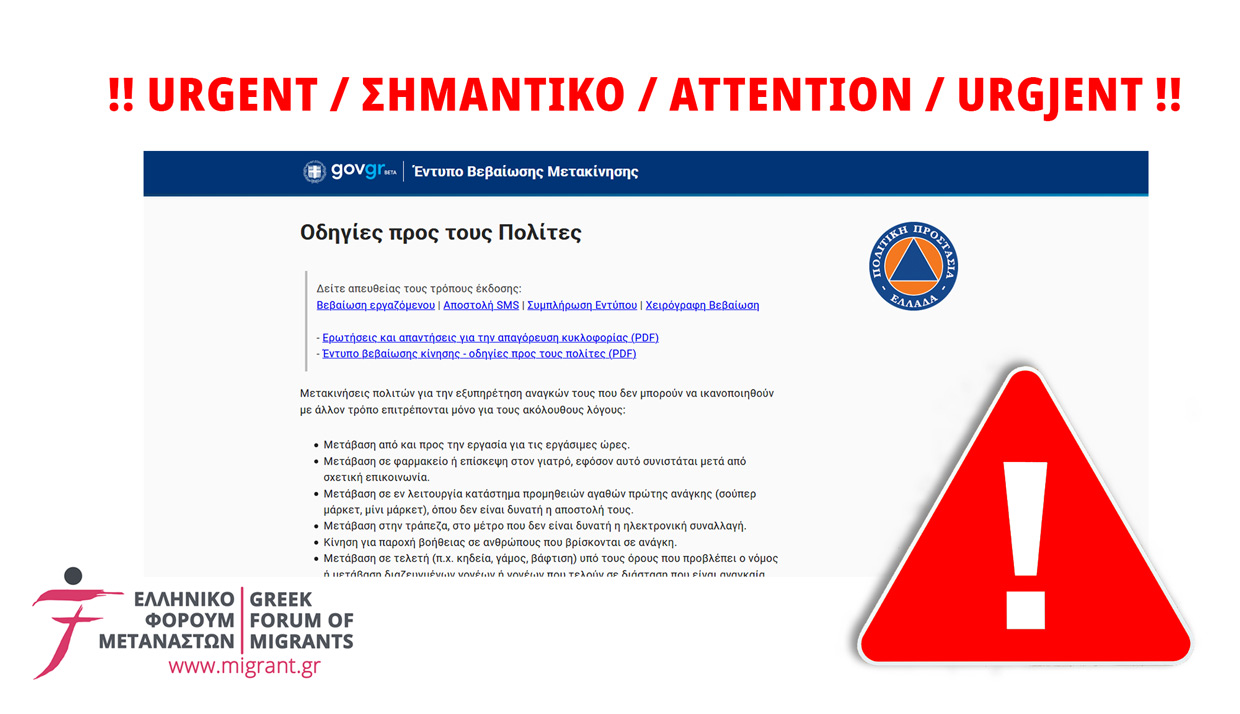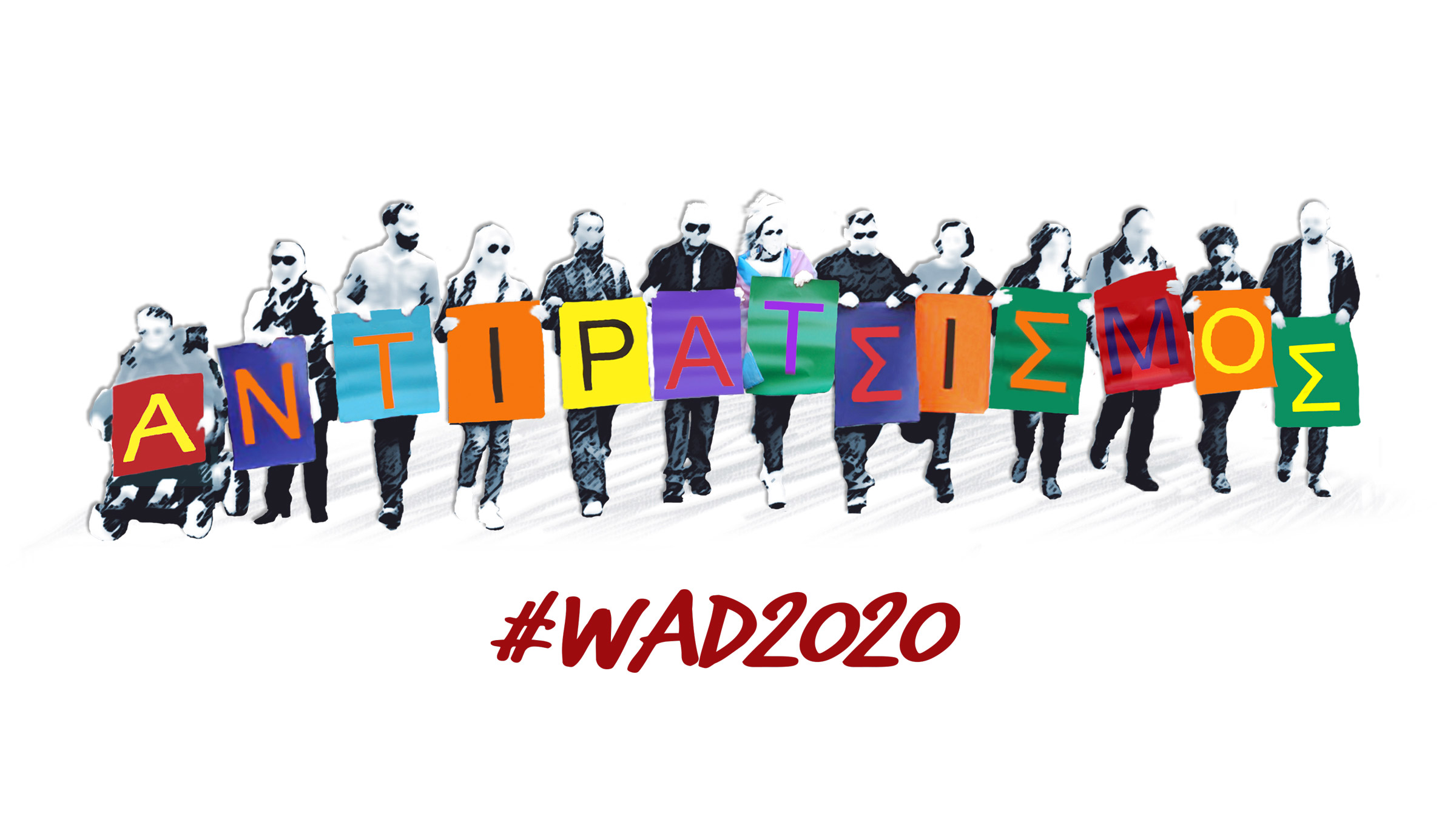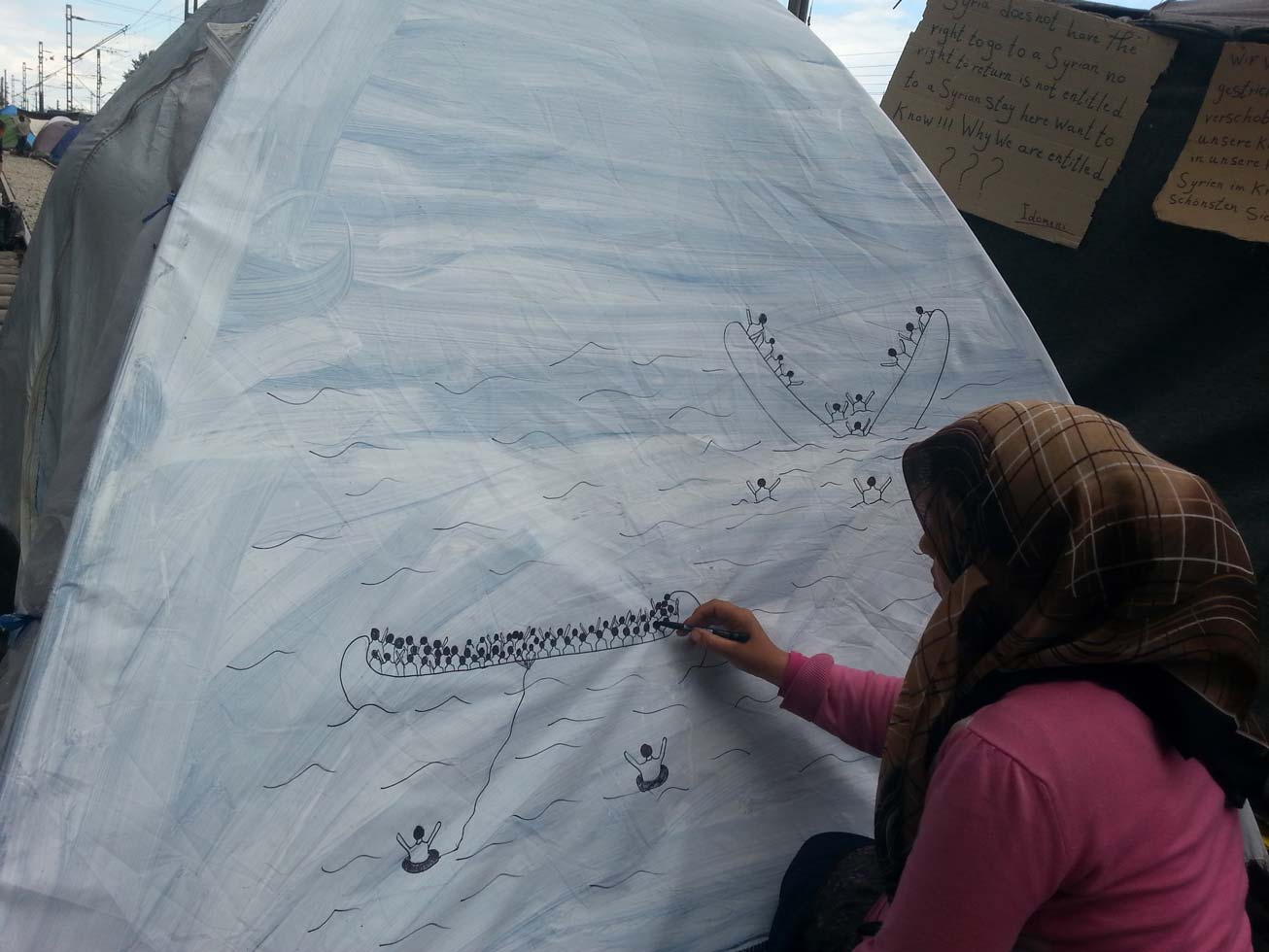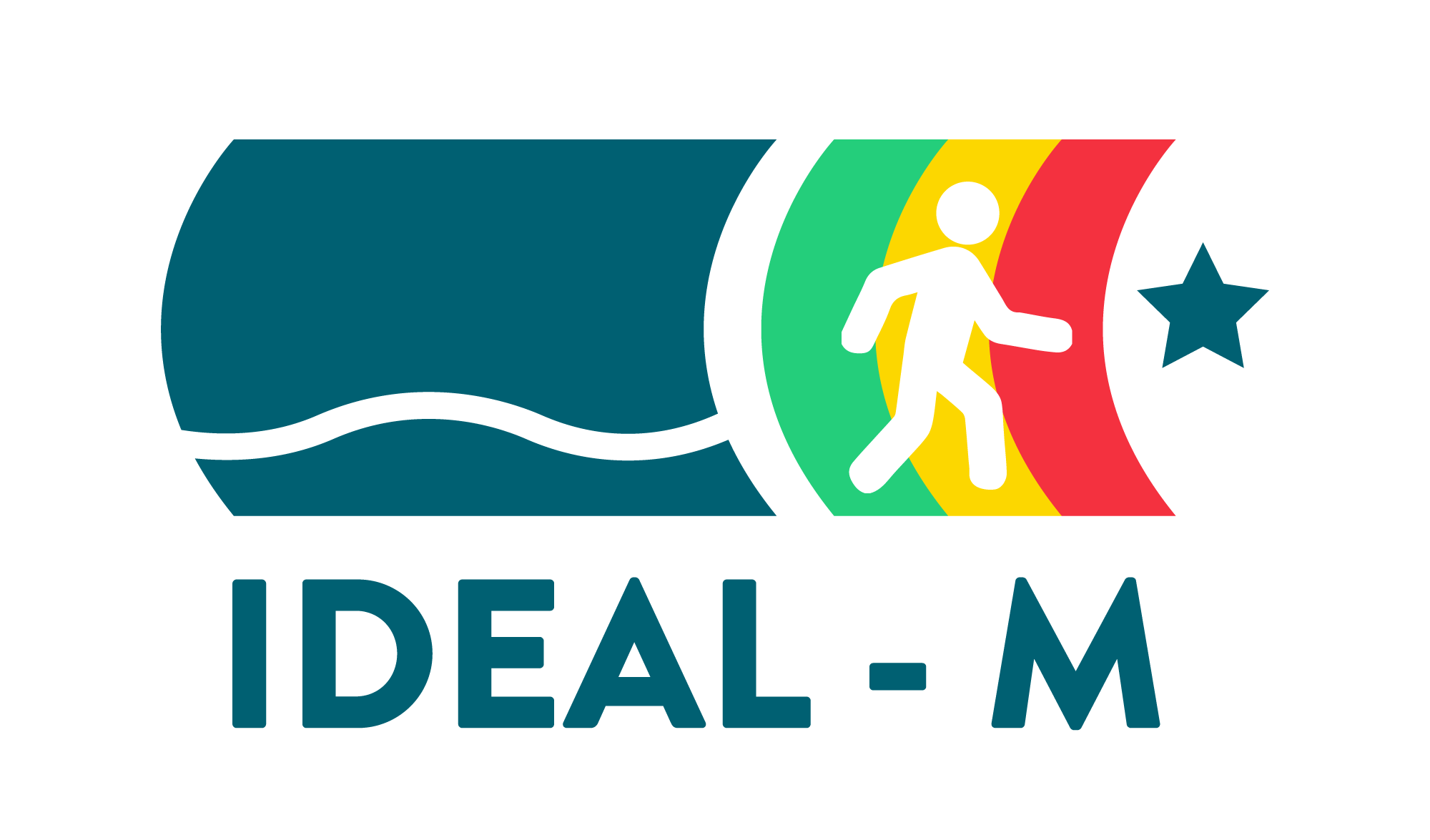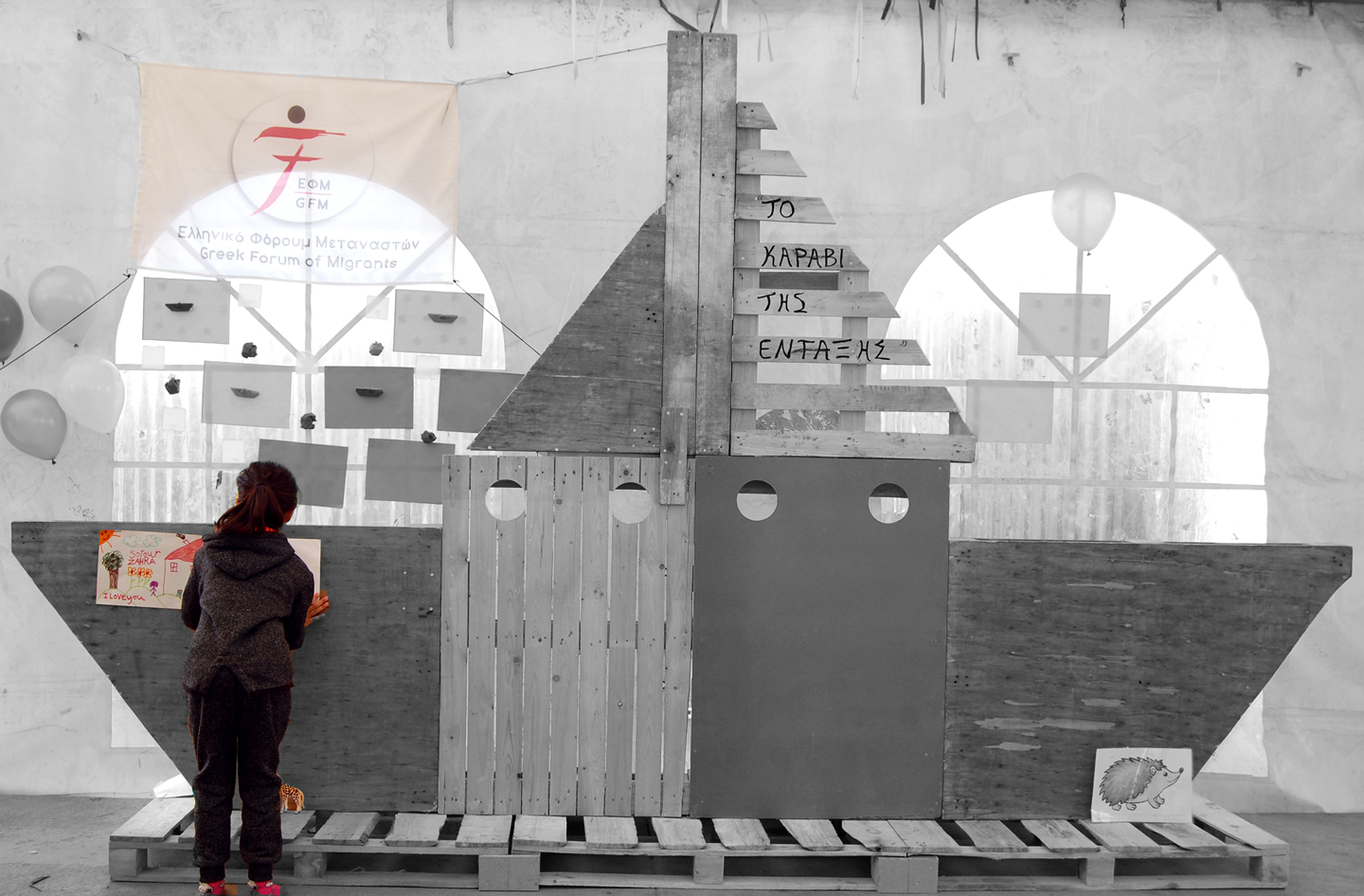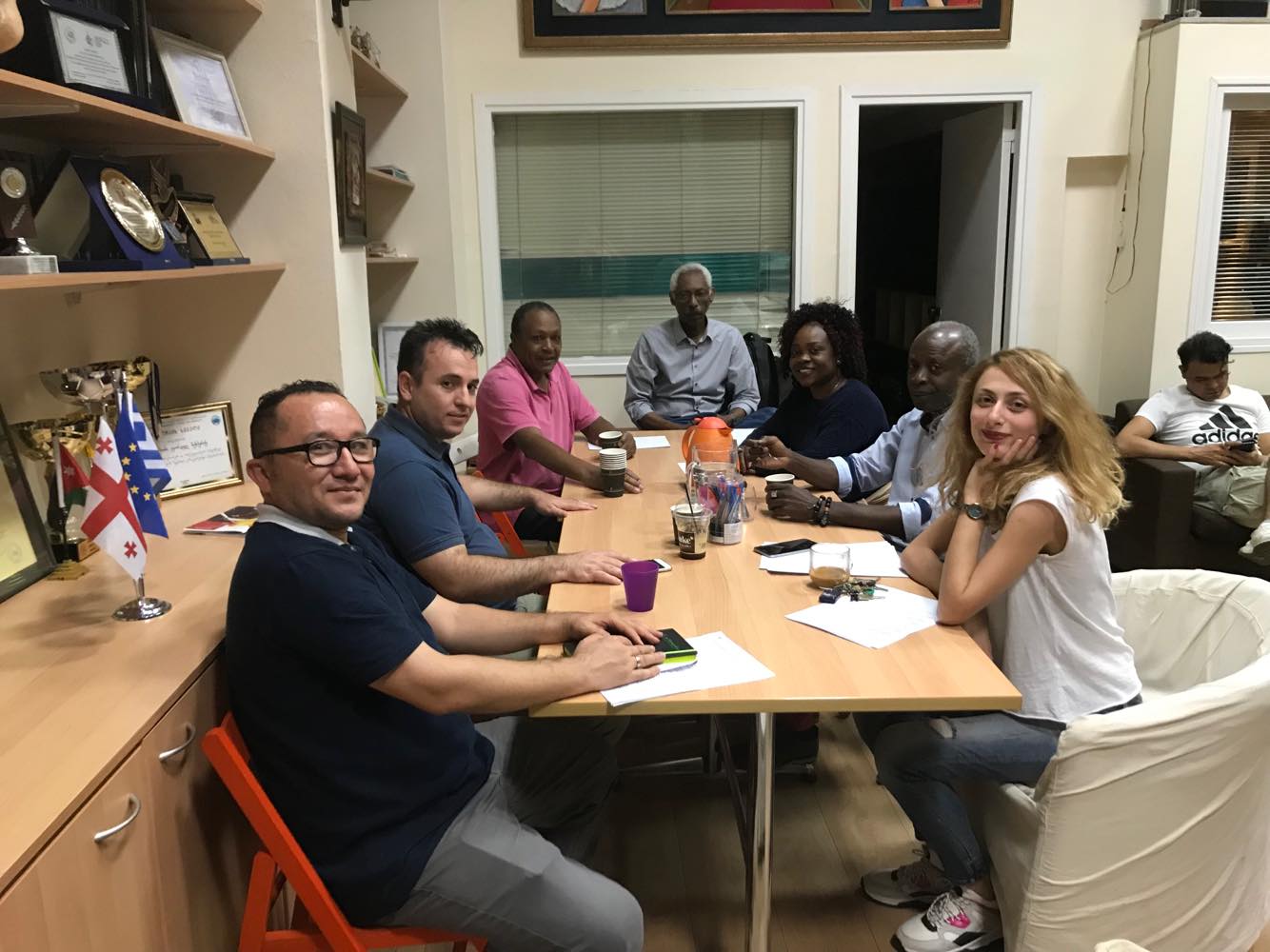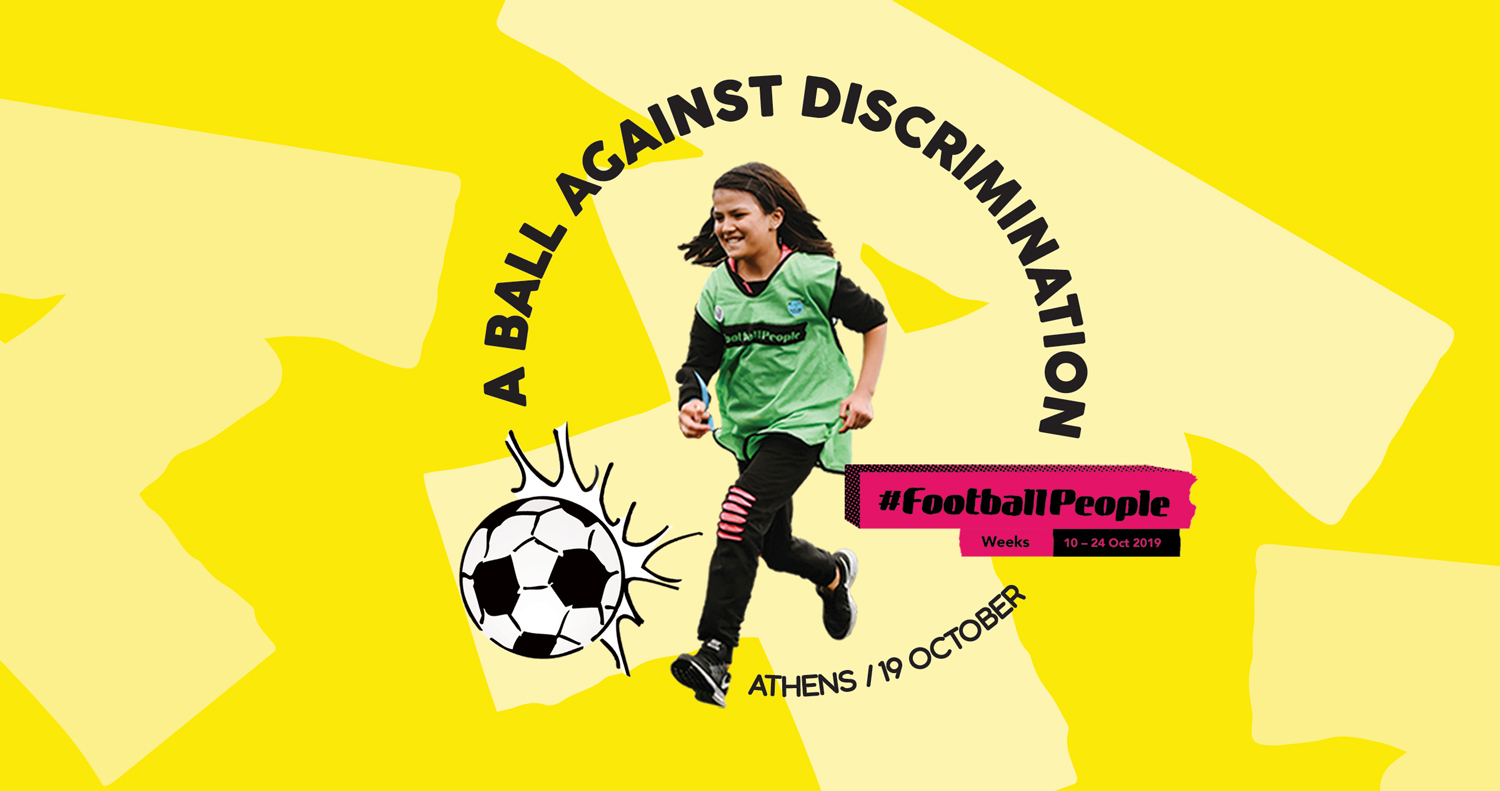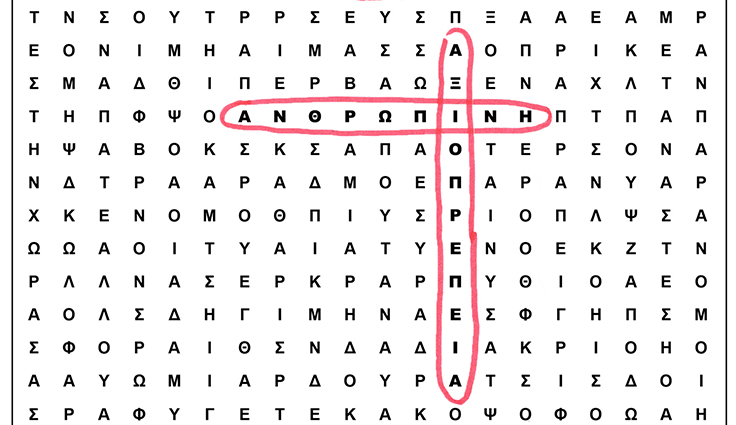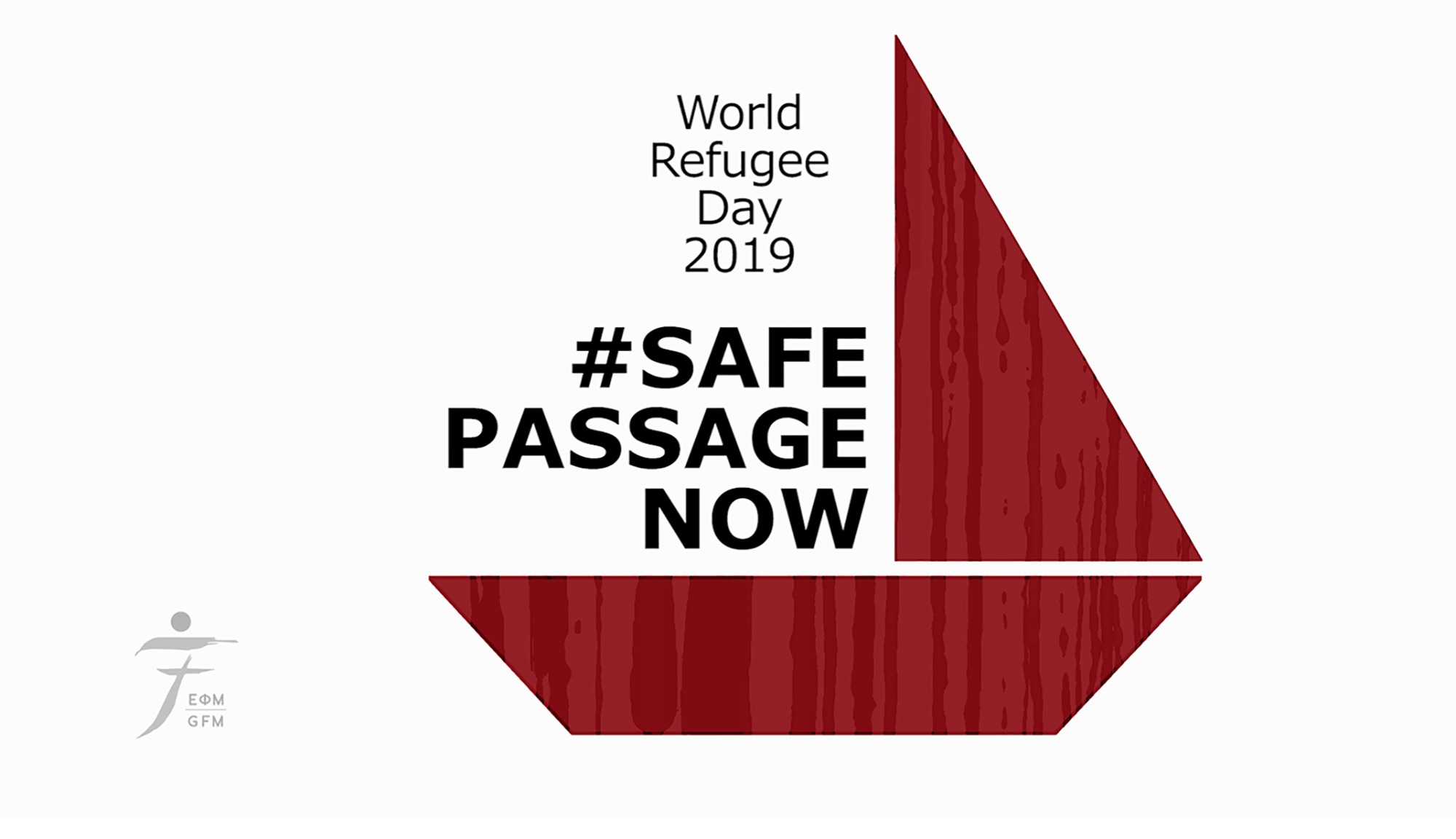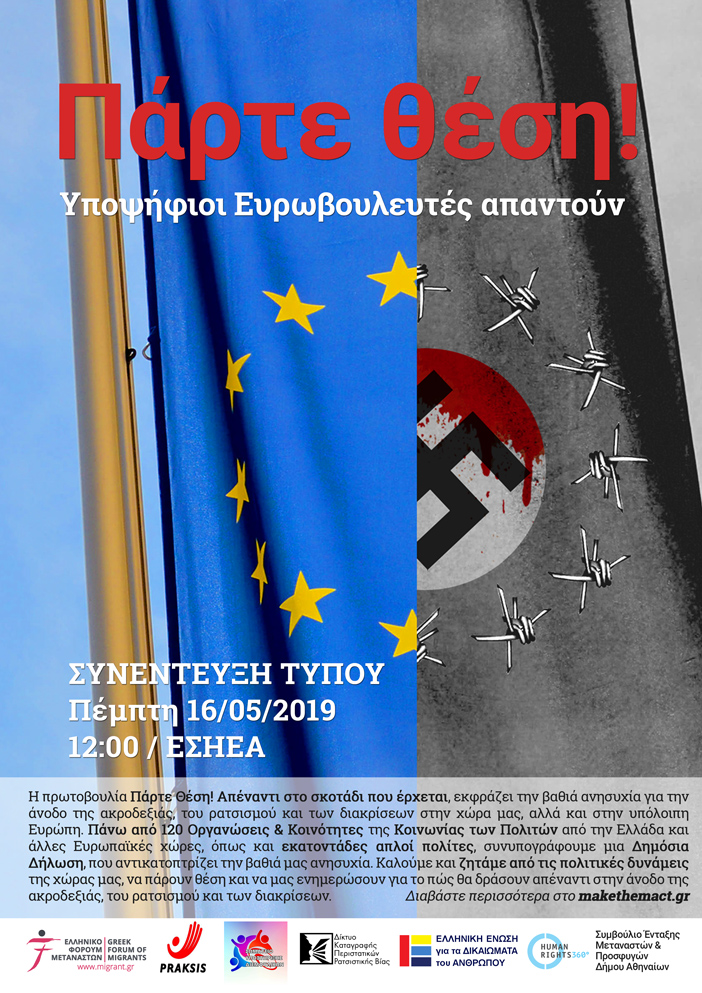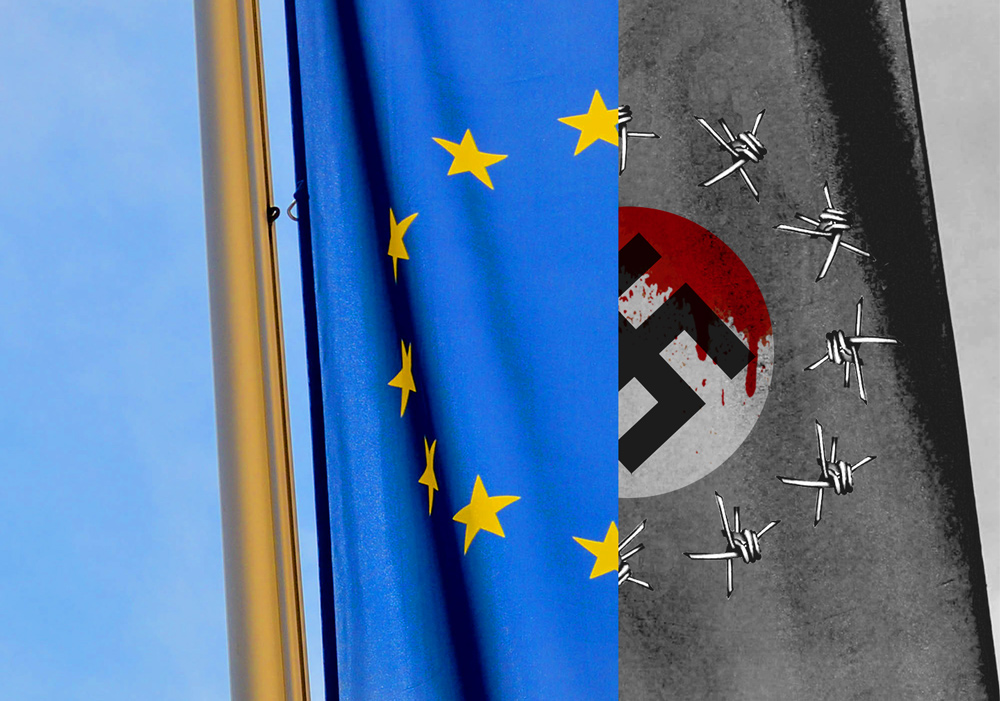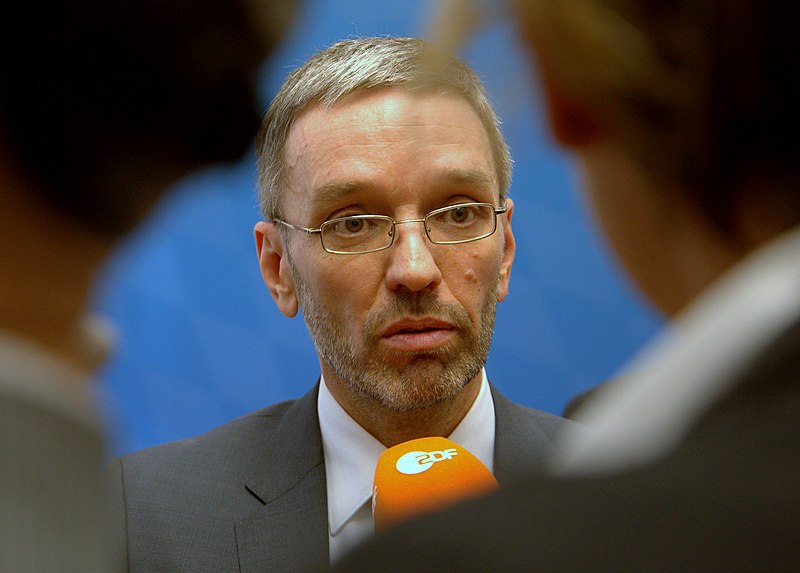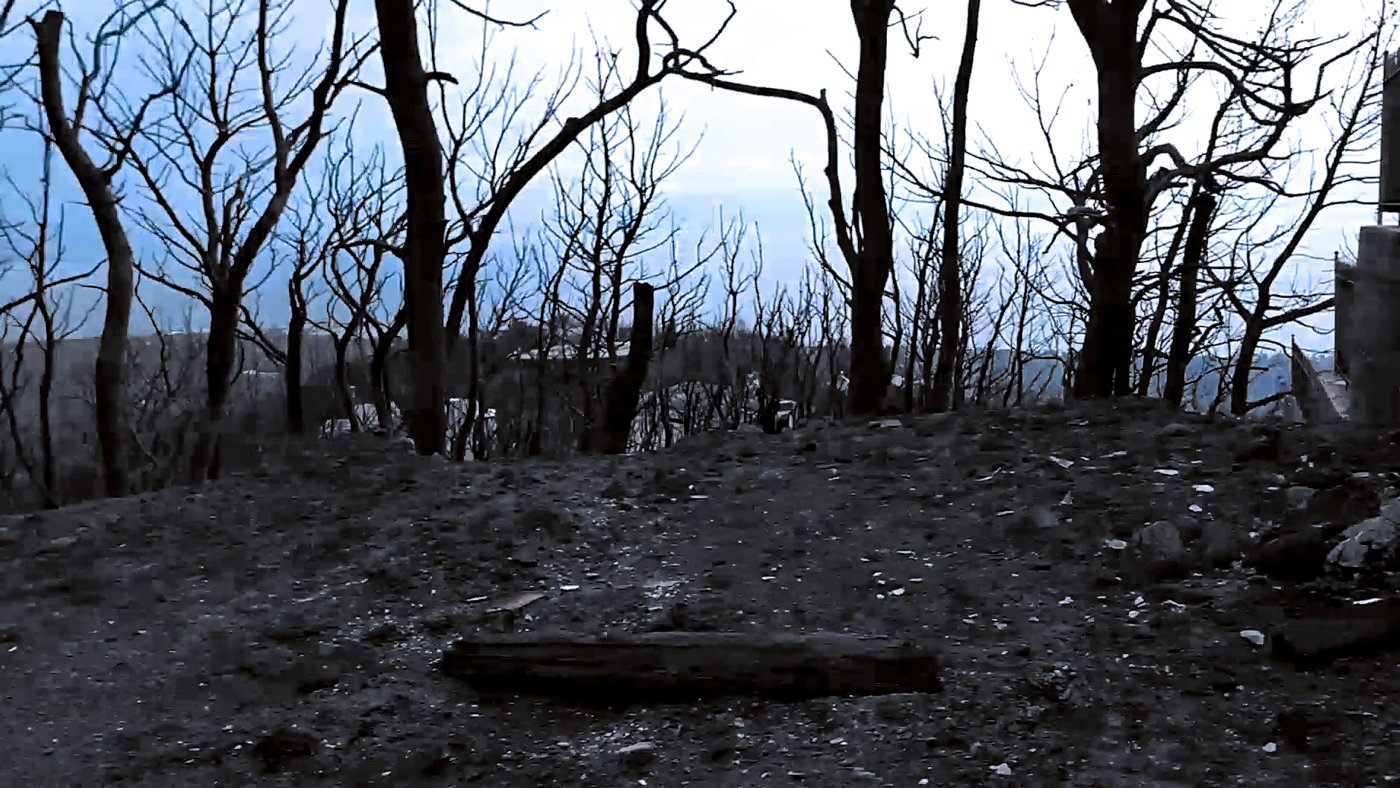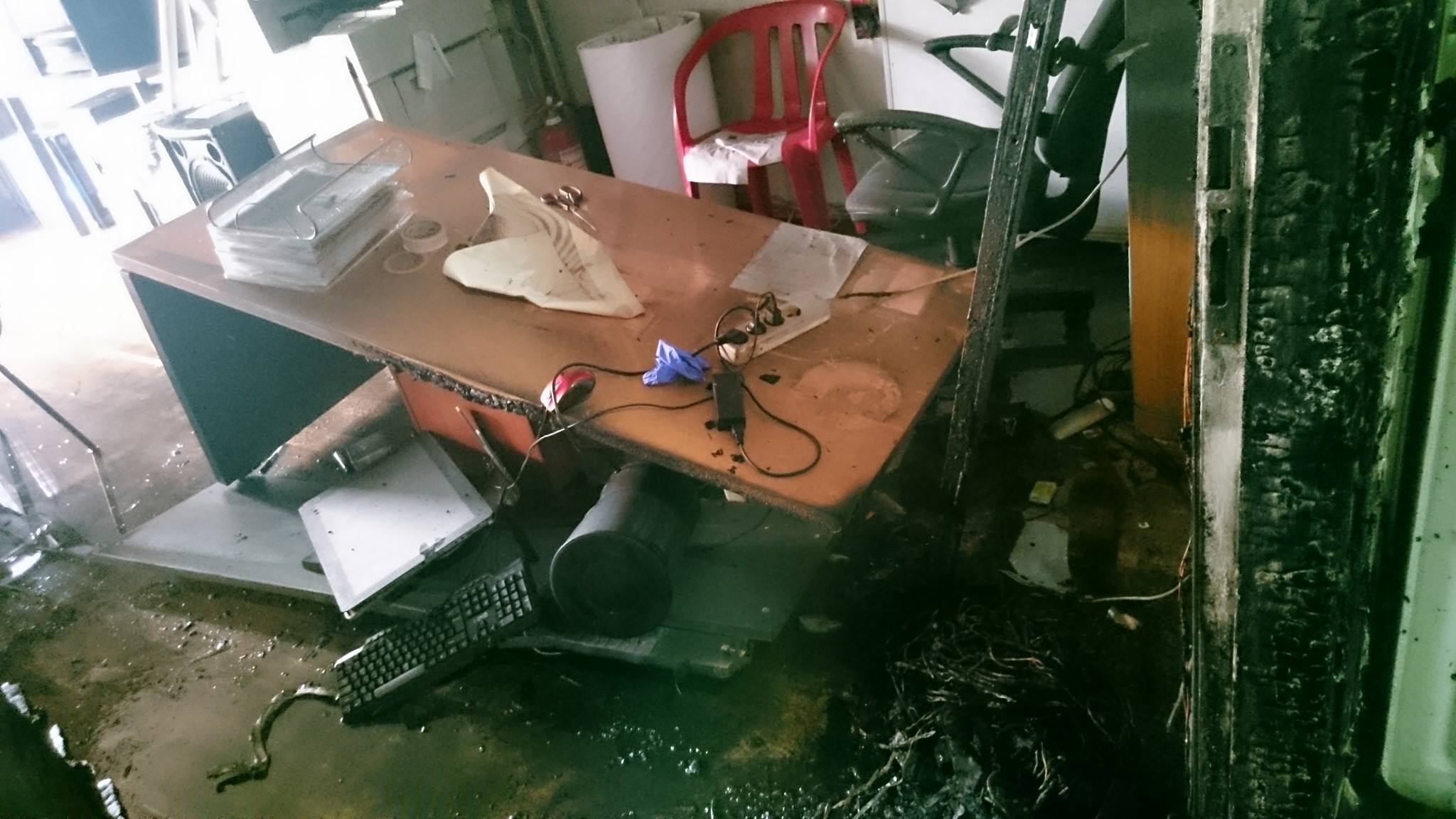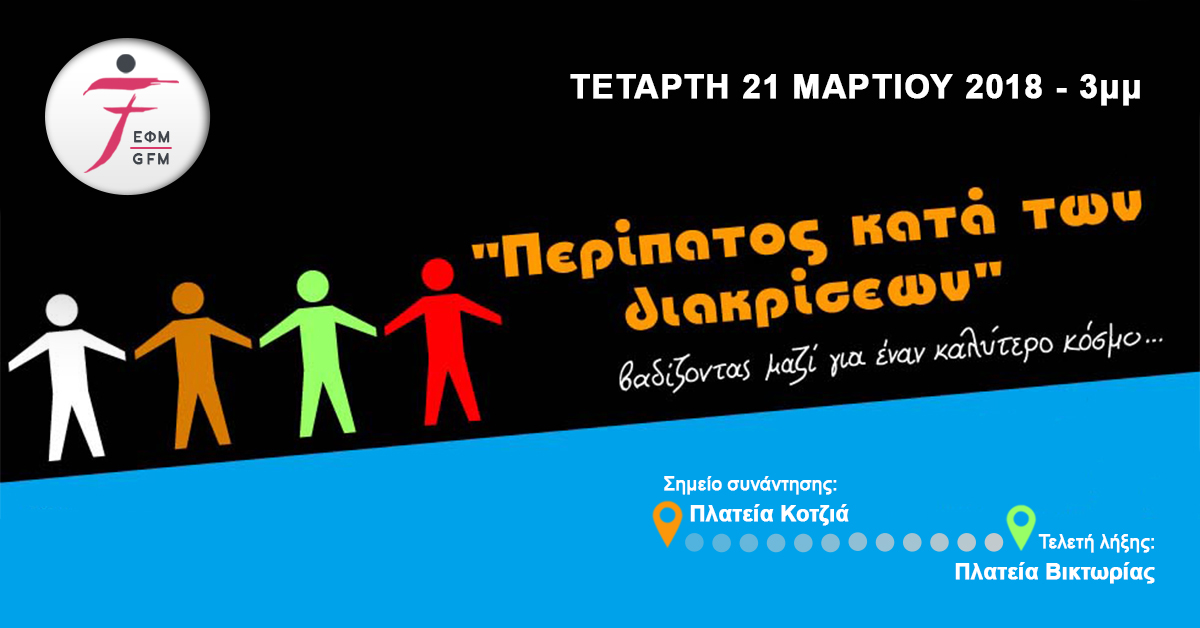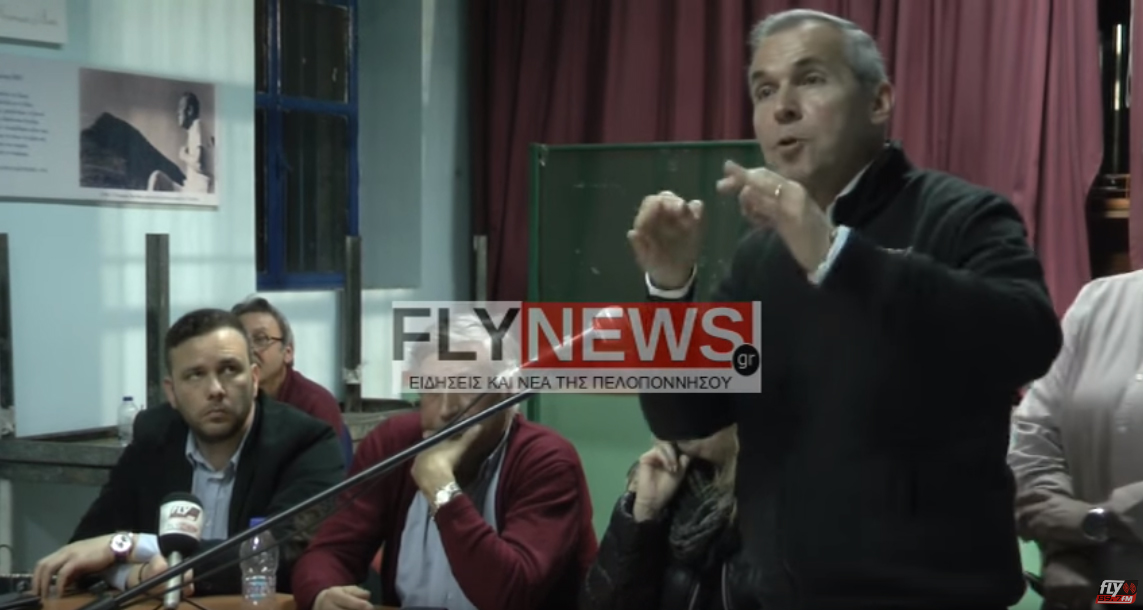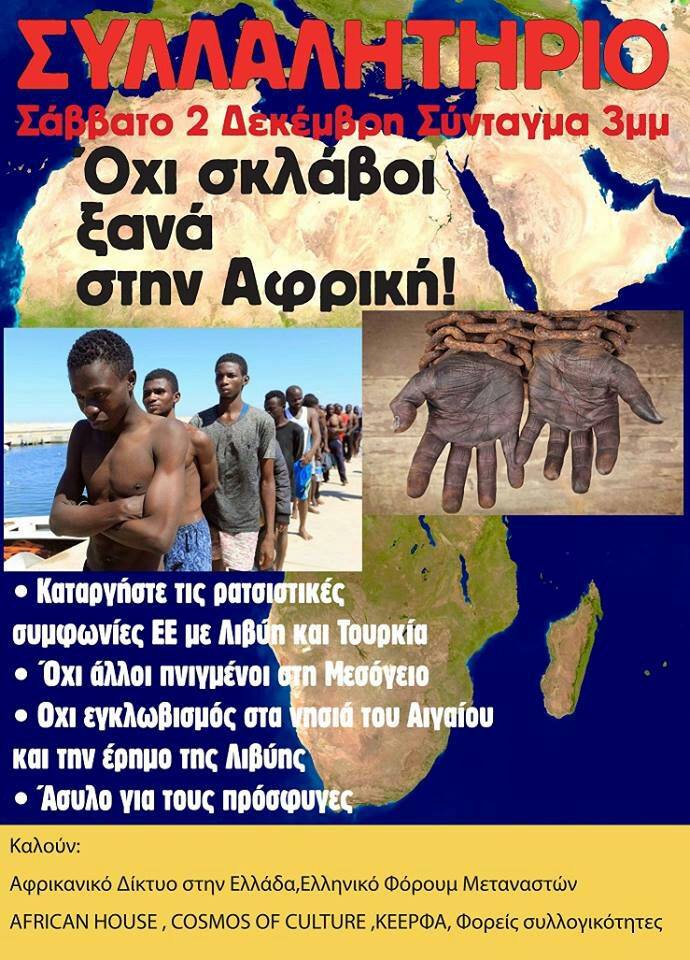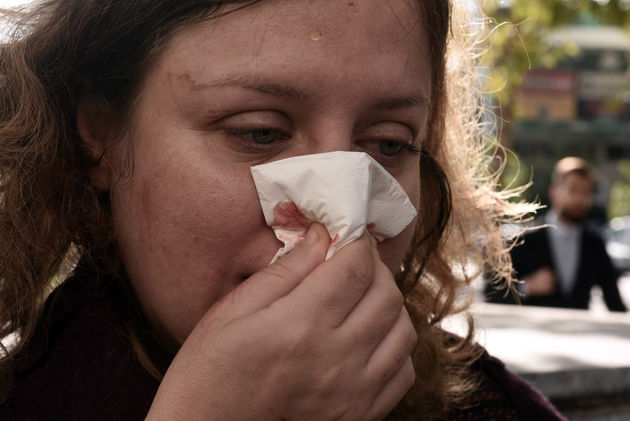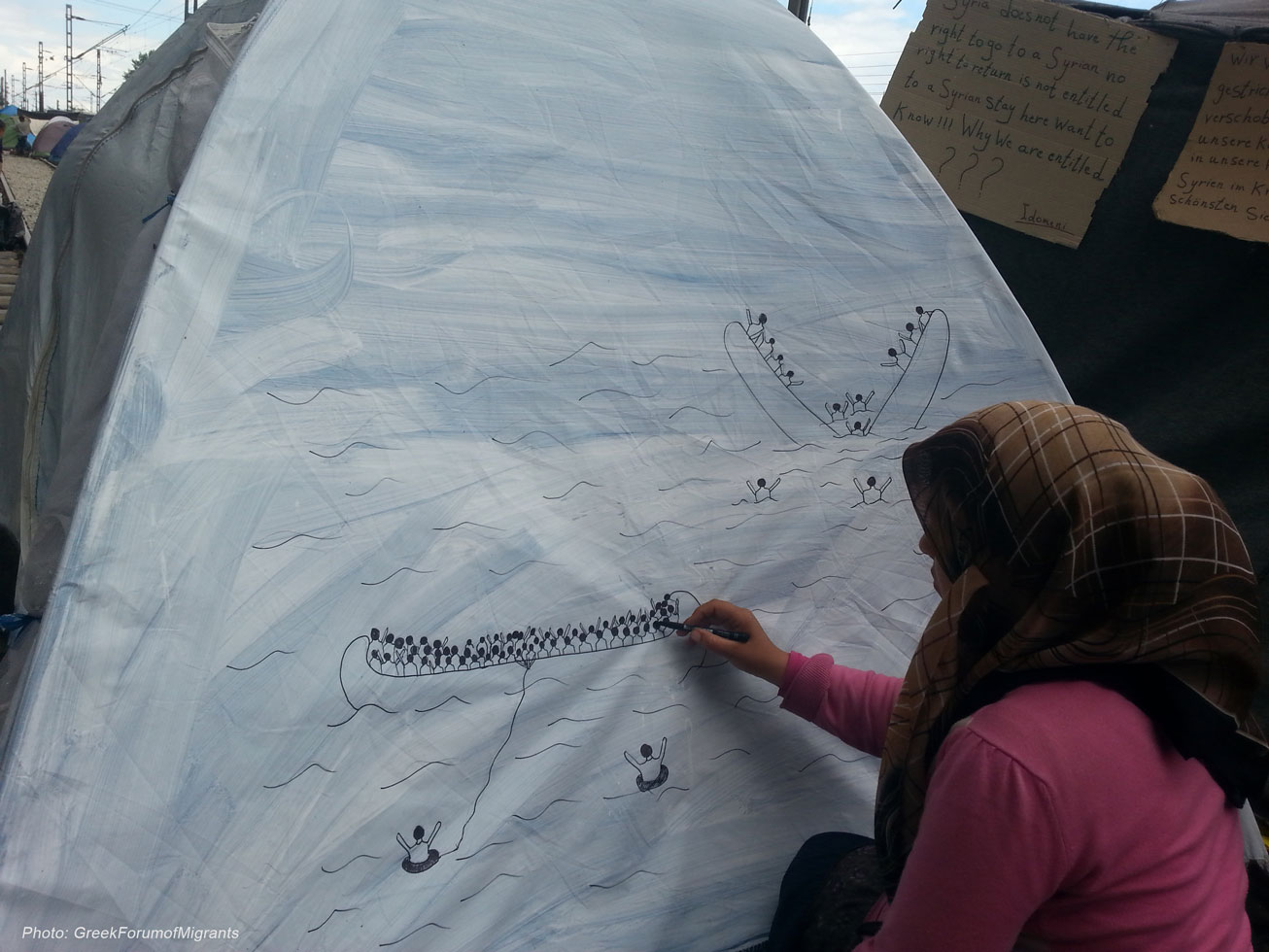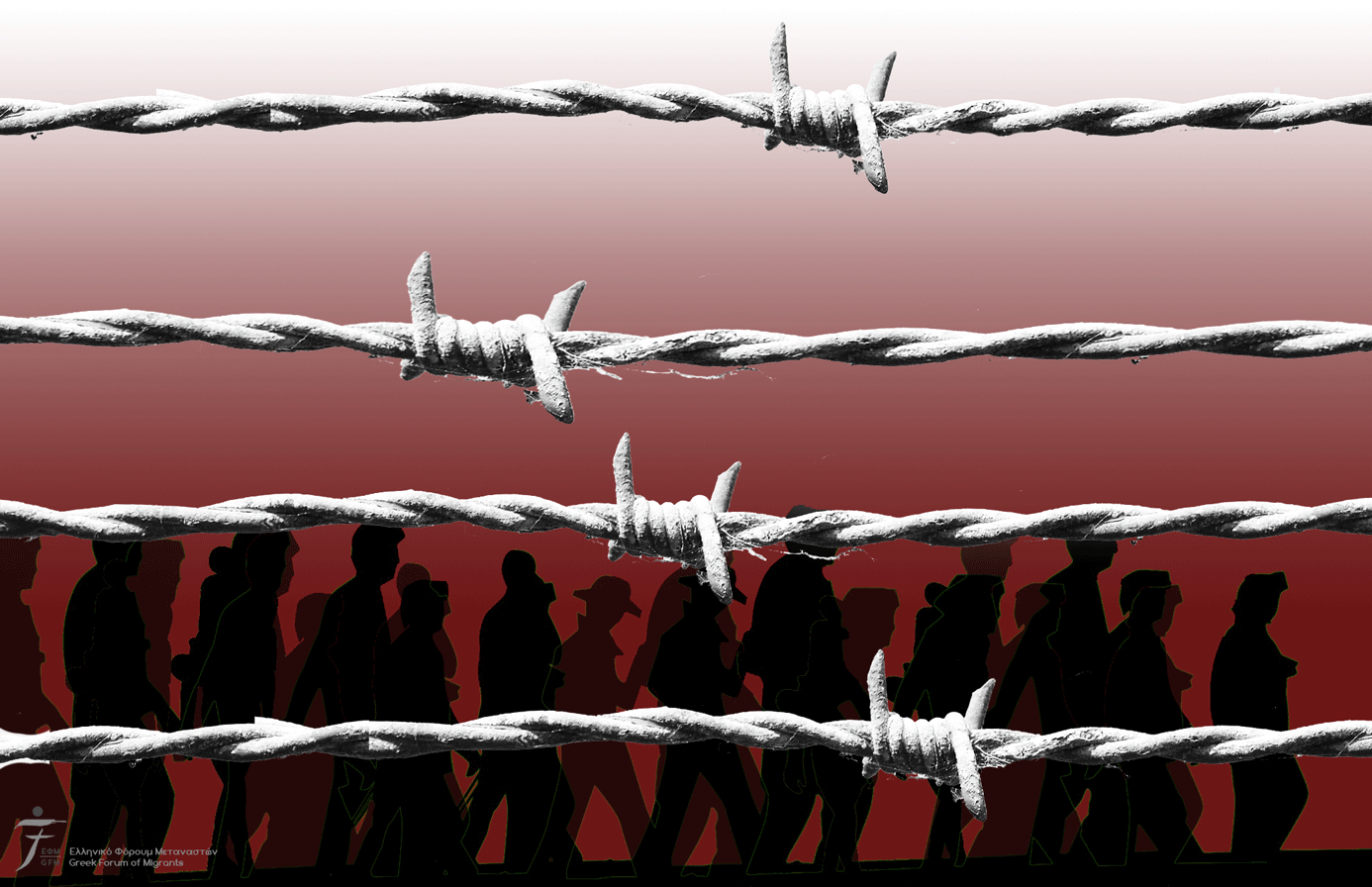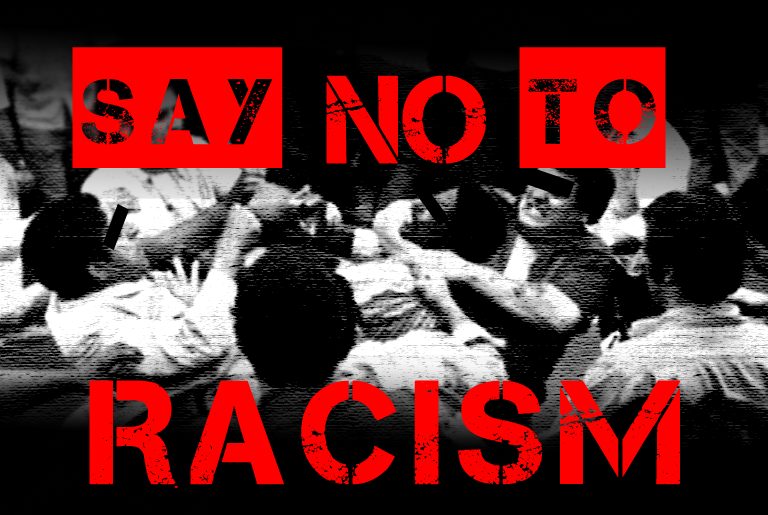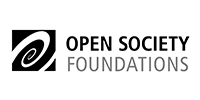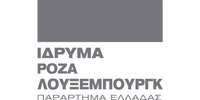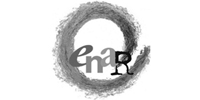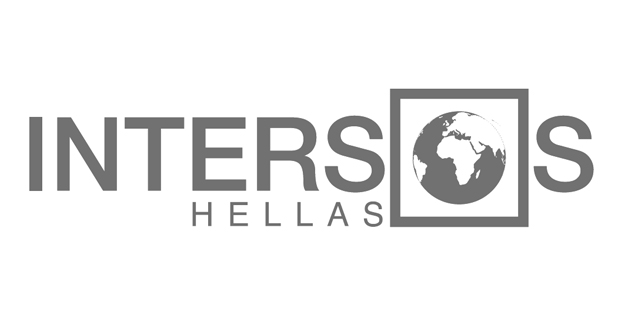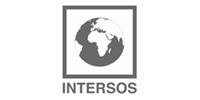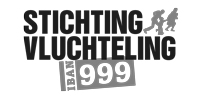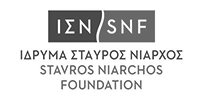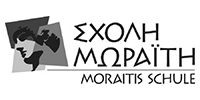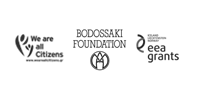Press Conference VACCINES FOR ALL
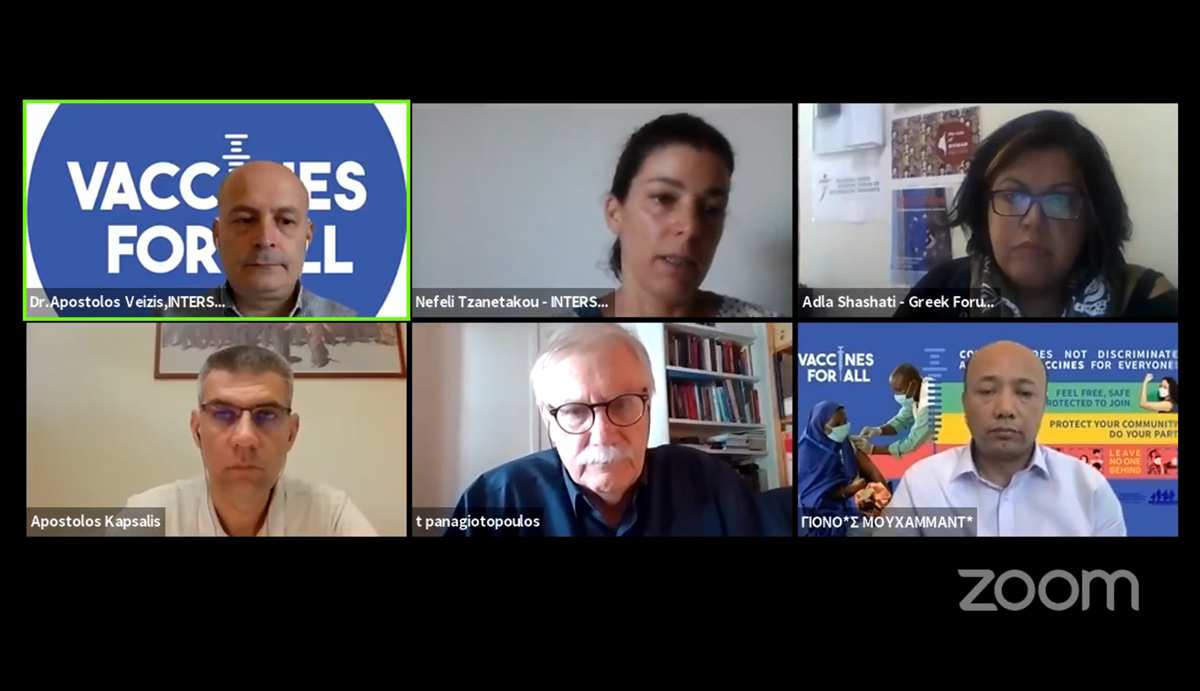
Read below the outcome from the Facebook Live Press Conference of the campaign Vaccines for All:
VACCINES FOR ALL
Given that public health is protected when all people have access to the common good called Health, INTERSOS Hellas, the Greek Forum of Migrants and the Greek Forum of Refugees have joined their voices and forces in order to provide a viable solution to the issue of COVID-19 vaccination of all asylum seekers and migrants in Greece, whether they have legal documents or not.
In this context, in the online press conference held on Wednesday, September 29, 2021, the Emeritus Professor of Public Health - Child Health at the National School of Public Health and member of the National Vaccination Committee, Mr. Takis Panagiotopoulos, noting the serious delays in the vaccination process of refugees and migrants in our country, he stressed the need for easy access to vaccines, while asking two key questions, referring to the basic principles of vaccination priority: "Who is more at risk, if they get sick, of getting seriously ill? Who, because of their living conditions, are more likely to get sick than others?" Then, as he noted, the key to universal vaccination is the trust in vaccines and the process of their administration, which can be ensured if the information is provided in the language of refugees and migrants, in an appropriate way, by people or bodies that inspire confidence.
Mr. Panagiotopoulos, finally, highlighted the serious problems that arise due to the lack of consistent and systematic disclosure of vaccination information regarding the refugee and migrant population by official government agencies, a practice contrary to all principles of public health science.
The professor of the Panteion University and the University of Peloponnese, lawyer and specialist in matters of migration, temporary employment and undeclared labour in the agricultural sector, Mr. Apostolos Kapsalishe stressed the need for the State to ensure that there will be no legal consequences for those who come for vaccination against COVID-19, without official identification documents, as there have already been samples of similar practices in our country, while pointing out the risks. due to the lack of vaccination, both for the refugee or migrant himself, and for the wider society as a whole.
Referring to the recent legislative intervention of the Ministry of Migration and Asylum regarding the vaccination of refugees and migrants, he stressed that there is no doubt that these provisions need to protect those concerned from any persecution for some time.
"I suggest that this should have time characteristics as an incentive for their increased participation", he stated characteristically, reminding that "over time our country has the largest percentage of informal immigrants, without official papers, that is, in the entire foreign population".
Mr. Apostolos Veizis, physician and general manager of INTERSOS Hellas, stressed the urgent need to share models of good and effective practices and lessons learned from other European countries in dealing with the pandemic, noting at the same time that the risk of COVID-19 infection among refugees and asylum seekers in reception facilities was 2.5 to 3 times higher than in the general population, at a time when COVID-19 vaccination rates in refugees and migrants in Greece remain particularly low.
The Greek Forum of Migrants, that represents 42 migrant communities across the country, is participating in this initiative, as underlined by the director of the GFM office, Ms. Adla Shashati, as "once again the migrants living in this country are not included in the planning of the national action plan, and this time we are talking about an issue that concerns Public Health"
According to Ms. Shashati, "two years after the outbreak of the pandemic, the national strategy for the protection of refugee and migrant populations is still on paper", while in Greece third-country nationals with a valid residence permit, according to data published in August 2021 by the Ministry of Migration and Asylum, is 670,619 people.
Finally, citing data from the European Centre for Disease Prevention and Control (ECDC) report of June 2021, which cover Europe as a whole, Ms. Shashati noted that low COVID-19 vaccination rates among migrants are often due to greater reluctance, misinformation and problems accessing health care.
The need to overcome bureaucratic obstacles by simplifying the process and the practical support of the right to vaccination for all, in the context of the protection of public health, pointed out for his part the director of the Greek Forum of Refugees, Mr. Yonous Mohammadi, presenting extensively the consequences on the vaccination campaign of the refugee population, due to fake news or lack of information, due to the dissemination of messages concerning the treatment of the pandemic and vaccination exclusively in the Greek language.
The protection of refugees and migrants who are in Greece and do not have the necessary legal documents has been a great challenge from the beginning and remains. The government`s recent announcements are moving in the right direction, but there are specific parameters that need to be taken into account to ensure that everyone has access to the vaccine, without exceptions and without sanctions. After all, public health is protected when all people have access to the coomon good called health.
COVID-19 vaccine must be available for all!
WATCH the whole press conference here:
For more information, please check our Facebook page @vaccinesforallgr or email us at vaccinesforallgreece@gmail.com
INTERSOS Hellas is a non-governmental organization that operates in Greece with the aim to provide equal opportunities and long term, durable solutions to people in need. INTERSOS Hellas is a member of the INTERSOS family, active since 1992 in 20 countries around the world.
The Greek Forum of Migrants (GFM) is the biggest network - union of migrant and refugee communities in Greece. For 20 years now, GFM has been defending migrants’ rights and promotes their integration by enhancing their individual and collective responsibility and participation, collaborating with institutions, NGOs, and society -on a national and European level.
The Greek Forum of Refugees (GFR) is an association of refugee and migrant communities, as well as individuals and professionals working all together in the inclusion, support and empowerment of asylum seekers, refugees, migrants and stateless people.
